Jewish Journal
Connect. inform. inspire., more blessing, less bragging on bimah.
- By Jane Ulman
- Published January 12, 2006
One mother thanked every one of her daughter’s teachers by name and grade, beginning with preschool. A father enumerated the scores of all his son’s soccer games. And another mother, with tear-filled eyes and a choked-up voice, used the occasion to present her daughter with her first diamond.
Ever since parents began speaking at their children’s bar and bat mitzvahs, they have raised the ante on length, competition and ostentation to the point where, according to University Synagogue’s senior rabbi, Morley Feinstein, we find that every child is more compassionate than Mother Teresa, a faster swimmer than Mark Spitz and a better mathematician than Albert Einstein.
But increasingly, rabbis have taken steps to reclaim the bimah. They have reined in parents’ freedom to present a laundry list of their child’s achievements, awards and, occasionally, shortcomings. Instead, they are requiring or strongly encouraging parents to reshape their speeches as blessings and keep their focus on the child and the sanctity of one of Judaism’s most significant rites of passage.
Donald Goor, senior rabbi at Temple Judea in Tarzana, instituted the practice of parent blessings eight years ago “out of an attempt to ensure the holiness of the service.” He gives parents multiple examples and wording specific to blessings. He even provides a structured, fill-in-the-blank “create-a-blessing” guide that helps them express their love, pride and dreams for their child in the mandated 300 words.
For Kaye Bernstein, whose third child, Jeffrey, became a bar mitzvah at Temple Judea on Dec. 18, adhering to the guidelines was not a problem.
“I tended to focus on what’s distinguishing about his life, his personality and what he brings to the family mix,” she said.
For her husband, Fred, giving a blessing made him think about his words in a different way.
“It’s not a time to tell anecdotes or give a toast,” he said.
Goor does not vet parent blessings. Neither does University Synagogue’s Feinstein, who also provides parents with examples and who counsels them to keep their talks short and sweet and to recognize the holy nature of the day.
“I still have to trust parents. I don’t want to be a censor,” he said.
But at Congregation Or Ami in Calabasas, Rabbi Paul Kipnes insists that parents give him a copy of their remarks — limited to one double-spaced typed page — at least a week in advance. He is especially concerned that they not tease or embarrass the child, however subtly, humorously or unintentionally. He also wants parents to share words of praise with their child before coming on the bimah because he believes that it’s easy to compliment publicly, but the compliments that really matter are the private ones.
Most rabbis estimate that parents, primarily in non-Orthodox congregations, began giving speeches 10 to 20 years ago.
Many trace the custom to the traditional Baruch She-P’tarani blessing, dating back to the Middle Ages, that the father recited to mark his son’s bar mitzvah. This blessing — “Blessed is He who has now freed me from the responsibility of this boy” — has been omitted, reframed or replaced by both parents reciting the Shehecheyanu in most Reform and Conservative services.
Some rabbis also believe speeches may be modeled on the blessings Jewish parents give their sons and daughters at the Shabbat table on Friday evenings.
Additionally, Jeffrey Salkin, senior rabbi at The Temple in Atlanta and author of “Putting God on the Guest List” (Jewish Lights, 2005) sees parent speeches as part of a trend in customs that used to occur at the celebration, such as a parent’s toast, being moved into the service.
“I’m tempted to say that it’s because people want to own the experience, to have more of a personal investment,” he said. For him, the practice isn’t problematic as long as parents don’t use the opportunity to competitively troop out their child’s talents.
In Orthodox shuls, parent speeches are generally not an issue as the predominant model, according to Rabbi Elazar Muskin of Young Israel of Century City, since only the bar or bat mitzvah and the rabbi speak at the service. And at Muskin’s synagogue, that occurs after the service.
But it’s quite accepted that parents speak during the celebration, and, even there, Muskin believes it’s important that they incorporate some religious content, such as a d’var Torah or a spiritual charge to their child.
Sally Olins, rabbi of Temple B’nai Hayim in Sherman Oaks, asks parents to speak on two occasions — on Friday night when they read the dedication that they have written in the siddur they give to their child and on Saturday mornings when they present the tallit.
Olins offers guidelines both individually and in classes she holds for pre-bar and bat mitzvah parents. She asks them to keep their words short and to focus on the child, not the congregation. For her, the worst — long-winded but not inappropriate — was a parent who began her remarks with a description of the child’s nine months in utero.
“I try to say, could you start a little later in life?” she said.
The process seemed overwhelming at first for Susan and Jeffrey Osser, whose daughter, Melissa, became a bat mitzvah at B’nai Hayim on Dec. 10. But it turned out to be very simple because they both, unintentionally and separately, wrote the siddur dedication and the tallit presentation and then melded them together.
“We both sat down at a time that was perfect for us individually when the creative juices were flowing and wrote from our hearts,” Susan Osser said. “It was so unplanned that it was authentic.”
In general, most rabbis believe that parents are becoming more aware of the significance and sanctity of bar and bat mitzvah. And while their words may not always be exactly in the language in blessing, parents are speaking less and less in the language of competition and aggrandizement and more and more in the language of love and support.
Said Salkin, “Every time I think of getting rid of this custom, I think of all the nice stuff I hear. I realize I would be punishing some very fine speeches if we decided not to allow this.”

Did you enjoy this article?
You'll love our roundtable., editor's picks.

Israel and the Internet Wars – A Professional Social Media Review

The Invisible Student: A Tale of Homelessness at UCLA and USC

What Ever Happened to the LA Times?

Who Are the Jews On Joe Biden’s Cabinet?

You’re Not a Bad Jewish Mom If Your Kid Wants Santa Claus to Come to Your House

No Labels: The Group Fighting for the Political Center
Latest articles.

Noa Tishby Among ‘Remarkable Women’ Honored by LA Magazine

Lieberman’s Legacy

Why Did the Biden Administration Feel Compelled to Mention Gaza in a Persian New Year Greeting?

Chosen Links – April 1, 2024

“Doonesbury” vs. Hamas
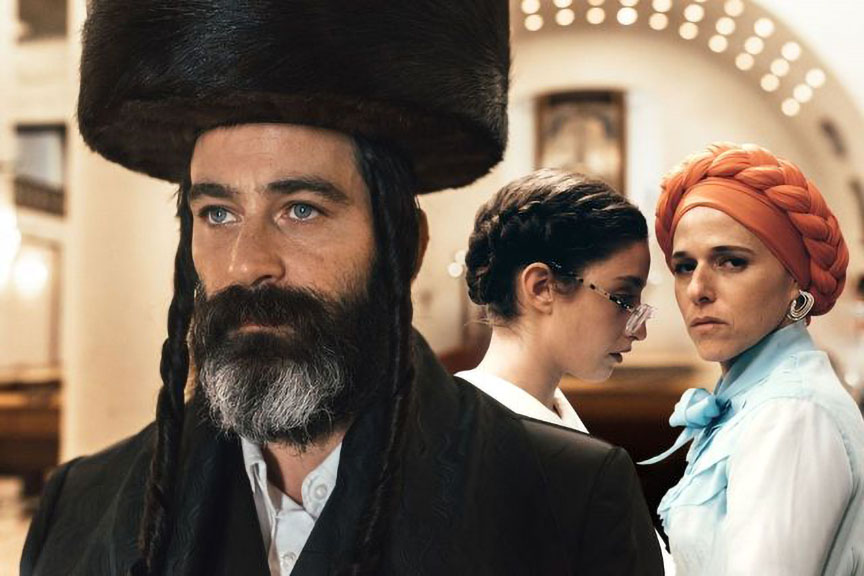
What Happens When Sparks Fly Between a Married Rabbi and a Single Young Woman?
Yula panthers win saracheck title in overtime classic, yula wins overtime thriller over ida crown; shalhevet is shocked by tabc in ot, make a star of david pendant with drinking straws, a love letter to ‘the jewish holiday table’.
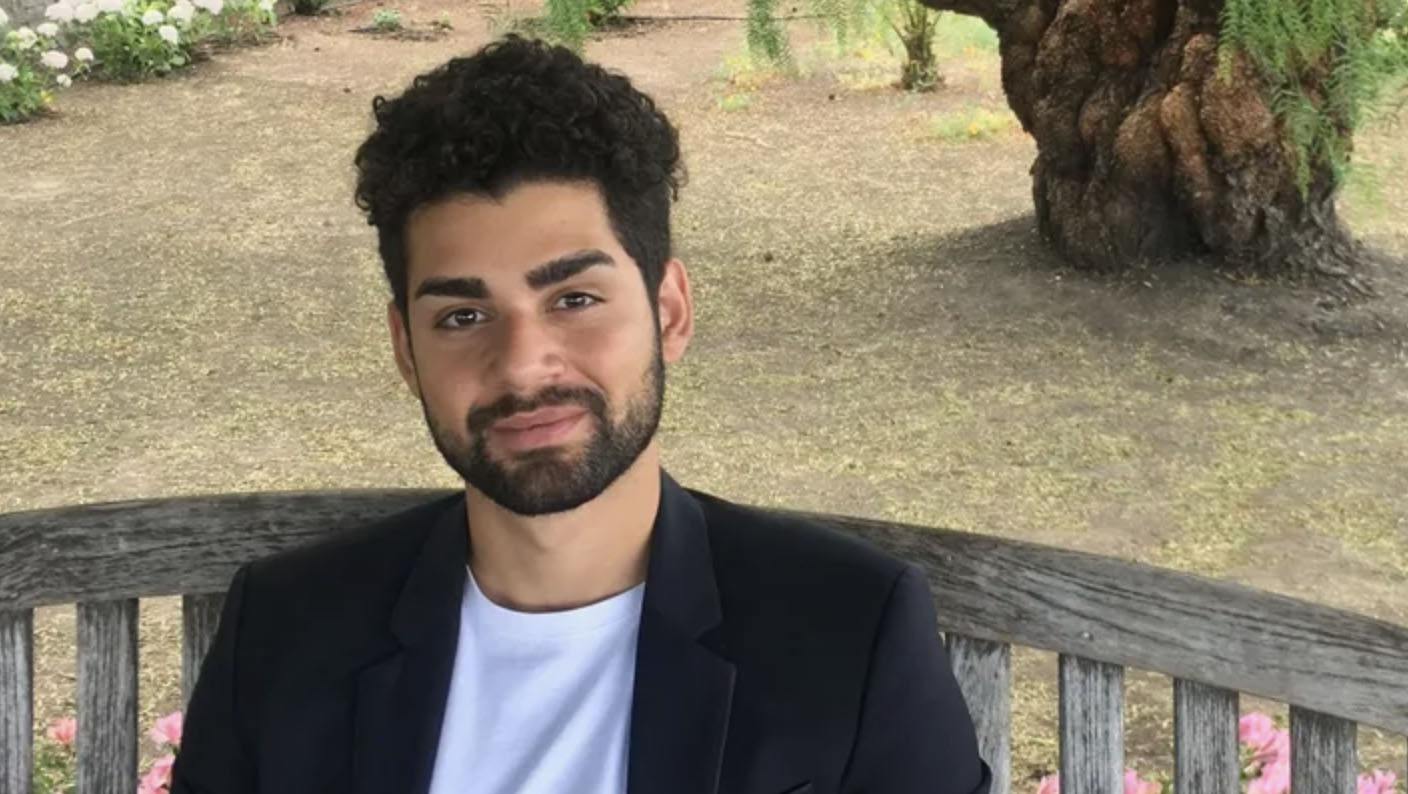
Vigil for Dr. Benjamin Harouni Set for April 7 in Beverly Hills
Orthodox Jewish Dentist was killed in San Diego Feb. 29.

A Tribute to Daniel Kahneman, Israeli-Born Psychologist Who Won the Nobel Prize in Economics (2002) for Asking: Are Humans Rational?
Daniel Kahneman was a friend and a teacher. Am Israel and the entire scientific world will miss him dearly.

180 for 180: Take Action TODAY for Israel

Beware the Ides of March—Redux
Not unlike Julius Caesar, Israel received a number of stabbings over the past few weeks, none of which, fortunately, have been fatal.
Beyond Israel and War
There is so much more to the Jewish people than anguishing over Israel and war.

Spielberg Says Antisemitism Is “No Longer Lurking, But Standing Proud” Like 1930s Germany

Young Actress Juju Brener on Her “Hocus Pocus 2” Role

Behind the Scenes of “Jeopardy!” with Mayim Bialik

Katie Workman: The Mom 100, Comfort Food and Ground Turkey Tacos
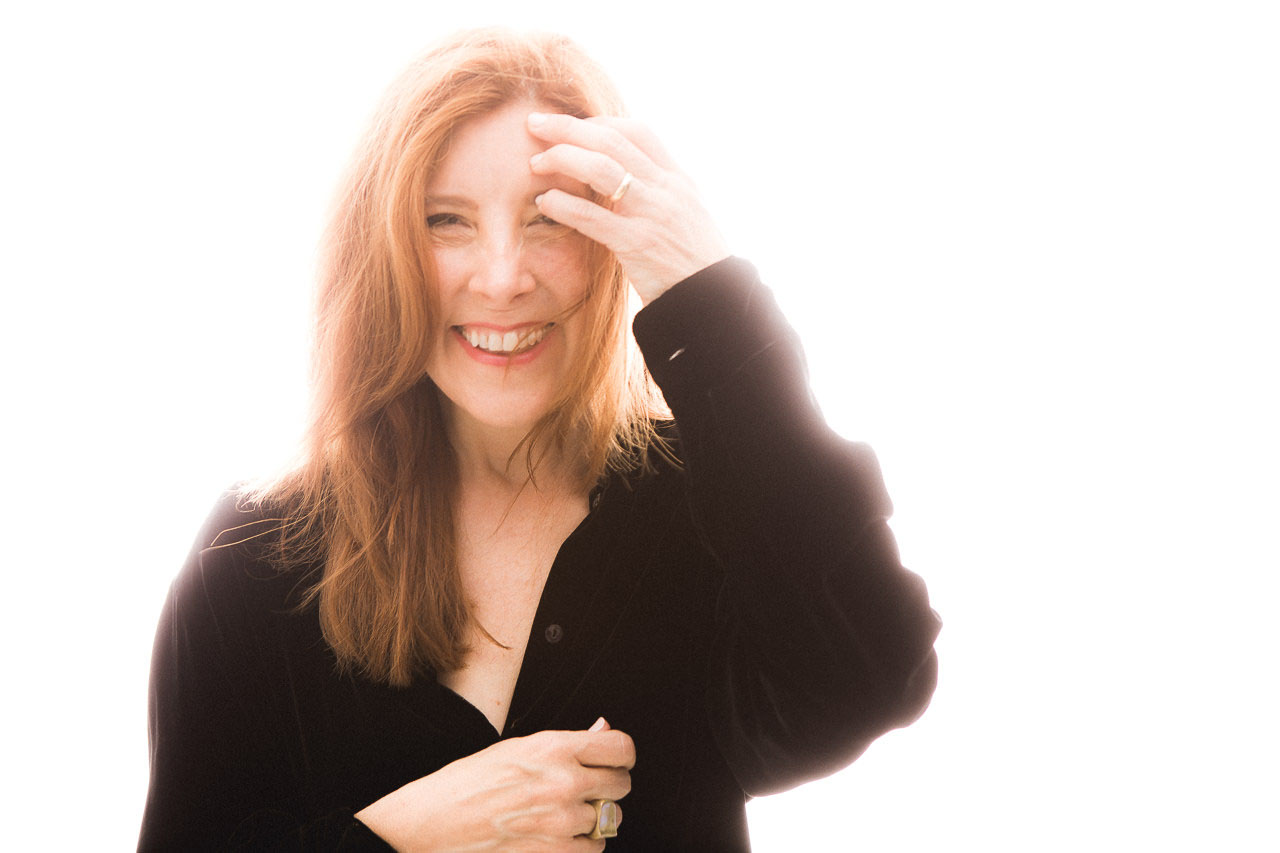
Jamie Pachino: “So Help Me Todd,” Food on TV and Chocolate Chip Cake
More news and opinions than at a shabbat dinner, right in your inbox..
The Evolving Role of the Tallit

D'Var Torah By: Rabbi Lisa Grushcow
When I was speaking with a 95-year-old congregant this week, she shared with me the uncomfortable feeling of having her synagogue change around her. “It feels like we have lost our way,” she said. “We used to be properly Reform. Now, when I come, I see people wearing a tallit. It makes me feel like the temple is trying to be Conservative or Orthodox. I feel like I don’t belong.”
I have great respect for this woman, who made a conscious choice in her youth to join a Reform synagogue for its progressiveness and its inclusivity. In her perception, it was a place where everyone was equal, united in a modern approach. For her, seeing fellow congregants wearing a tallit feels like a betrayal of the Reform principles she holds dear. “Why on earth are they doing this?” she asks. “And what do they think of me, when I don’t?”
The commandment to wear tzitzit , the fringes on the corners of the tallit, comes from this parashah . The context gives us insight into the origins of the practice, and what it might — and might not — mean to us today.
Sh’lach L’cha opens with God telling Moses to send 12 scouts to report on the Promised Land. All 12 come back describing its goodness; but 10 share their conviction that the Land “eats its inhabitants,” and moreover, is settled by giants whom the Israelites can not hope to conquer ( Numbers 13:32-33 ). The Israelites believe them, and as a result, God condemns an entire generation to die in the wilderness.
Two words jump out from these opening chapters: latur , “to scout out,” and zenut, often translated as “faithlessness,” but really meaning “whoredom” (Numbers 13:16-17ff; 14:33). The 12 men are sent to scout out the Land: their negative reports, along with the Israelites’ agreement are seen as a betrayal of the most intimate kind.
These two words recur at the end of the parashah, in the passage concerning the tzitzit:
The Eternal One said to Moses as follows: Speak to the Israelite people and instruct them to make for themselves fringes on the corners of their garments throughout the ages; let them attach a cord of blue to the fringe at each corner. That shall be your fringe: look at it and recall all the commandments of the Eternal and observe them, so that you do not follow [ lo taturu ] your heart and eyes to whore after them [ zonim achareihem ]. Thus you shall be reminded to observe all My commandments and be holy to your God. I am the Eternal your God who brought you out of the land of Egypt to be your God: I, the Eternal your God. ( Numbers 15:37-41 )
This passage is included after the Shema in traditional prayer books. Most Reform prayer books eliminated it, with the notable exception of Mishkan T’fillah , which includes it as an option. It is understandable that it would have been removed in an era in which Reform Jews did not wear such ritual garb, seeing it, in the words of the Pittsburgh Platform of 1885 , as something that was “apt rather to obstruct than to further modern spiritual elevation.”
So why the change? We do not, for the most part, wear tzitzit out of a strict sense of commandedness. After all, as the feminist theologian Judith Plaskow notes, “why should the creator of the universe care whether we put a ‘tassel on the corner of our clothes in every generation’ and what possible difference can it make…?” (Lawrence Hoffman, ed., My People’s Prayer Book , vol. 1 [Woodstock, VT: Jewish Lights, 1997], p.115). And yet we see shifts in behavior. I doubt there are Reform synagogues in which everyone wears a tallit, but in most, many do. There are numerous sociological and historical reasons, including a renewed openness to Jewish peoplehood and particularistic practice, which developed after the Holocaust and the founding of the State of Israel. Ultimately, though, I think the answer is that for many Reform Jews, wearing a tallit has once again become a source of spiritual meaning.
True to Reform theology and unlike a more Orthodox approach, wearing the tallit is equally open to women and men, and is never something we would make mandatory. Rather, we hold to individual choice, whereby individuals do not judge others for the ritual decisions they make. (From that perspective, the stoning of the man who gathers wood on the Sabbath, which comes immediately before the passage on tzitzit , is much more challenging!). The question remains: What is the meaning that can potentially be found in this choice?
First and foremost, tzitzit are tangible. We need not go as far as the midrashic story of the yeshivah student whose tzitzit take on a life of their own to keep him from consummating his visit to a prostitute (Babylonian Talmud, M’nachot 44a ) to appreciate that physical reminders can help guide our actions. Like the proverbial string around one’s finger, tzitzit serve as a counterbalance to the forces of distraction or forgetting. The Torah portion begins with the scouts being led off course by what their eyes see and what their hearts fear. The commandment of tzitzit , at the end of the parashah, gives a strategy for avoiding such mistakes.
You or I may rarely be faced with a challenge like that of the scouts. But there is something universally human about the risk of going off course. As Rabbi David Dunn Bauer writes, “Human love and desire energize and inspire us. Conversely, though, they can completely knock us off track and make us do really stupid, if not hurtful, things” (Lisa Grushcow, ed., The Sacred Encounter [NY: CCAR Press, 2014], p.735).
That, perhaps, may be what the tztitzit help us to avoid. But what might they help us to achieve? One answer might lie in a little-noticed word. We translate kanfei big’deihem as “the corners of their garments.” Kanaf more commonly means “wing,” and often refers metaphorically to the wings of the Divine Presence, kanfei haShechinah. On an individual level, the experience of wearing a tallit can be like being wrapped in something holy, creating a sacred space for prayer. And on the communal level? Perhaps the tallit can be seen as Judaism’s big tent. Whether or not you wear one, there is room enough for us all.
Rabbi Lisa Grushcow , D. Phil., is senior rabbi at Temple Emanu-El-Beth Sholom in Montreal, Canada. Rabbi Grushcow is the author of Writing the Wayward Wife: Rabbinic Interpretations of Sotah , the editor of The Sacred Encounter: Jewish Perspectives on Sexuality , a contributor to The Torah: A Women’s Commentary, and a regular columnist with the Canadian Jewish News. She serves as co-president of the Montreal Board of Rabbis.
Daver Acher By: do not use Rabbi Jill L. Maderer
Whoredom. Our text chooses an intense and potentially problematic symbol to illustrate deviation from the right path!
Leaving for a different study the troubling aspect of the gender and power issues around the concept of whoredom, I am interested in the way Rabbi Grushcow links two very different situations in the portion that use the term ( zenut , "whoredom"). The first circumstance — scouting the Land — is a rare event. Whereas the second circumstance — the ritual of the fringes that remind us to observe the mitzvot — is an everyday occurrence.
To help us confront both those dramatic life experiences, and also those mundane life experiences, that could knock us off course, Judaism offers the practice of Musar, our tradition’s way to help us keep on course. More than one thousand years old, Musar is a Jewish practice, in which we engage in meditation and journaling to help us pay attention to the character virtues we need to develop. The Mussar Institute leader, Alan Morinis, teaches: Musar aims to help us close the gap between our ideals and the life we actually lead.
So often, we know which behaviors we are trying to avoid and which behaviors we are trying to pursue. But we need reminders along the way. The 18 th century Musar teacher Rabbi Moses Chayim Luzzato cautions us not to overlook everyday character traits, such as generosity, patience, humility, compassion, trust, and truth. Sure, they seem obvious, he concedes, you already know them! Rabbi Luzzato says: I’m not teaching you anything new. I’m just directing your attention to it (paraphrase of Ira F. Stone, Mesillat Yesharim: The Path of the Upright [Philadelphia: JPS, 2010], p . 1).
We all have habits that are at risk of becoming hindrances to our spiritual growth and afflictions in our relationships. When we look at the fringes of tzitzit and when we engage in other Jewish ritual and mindfulness practices, may we come closer to the our best versions of ourselves.
Rabbi Jill L. Maderer is senior rabbi at Congregation Rodeph Shalom in Philadelphia, PA.
Sh’lach L’cha , Numbers 13:1−15:41 The Torah: A Modern Commentary, pp. 1,107−1,122; Revised Edition, pp. 977−997 The Torah: A Women’s Commentary, pp. 869–892 Haftarah, Joshua 2:1−24 The Torah: A Modern Commentary, pp. 1,262−1,264; Revised Edition, pp. 998−1,000
- Sh'lach L'cha
When do we read Sh'lach L'cha
Listen to this commentary, d'var torah author.
Rabbi Lisa Grushcow , D. Phil., is senior rabbi at Temple Emanu-El-Beth Sholom in Montreal, Canada. Rabbi Grushcow is the author of Writing the Wayward Wife: Rabbinic Interpretations of Sotah, the editor of The Sacred Encounter: Jewish Perspectives on Sexuality, a contributor to The Torah: A Women’s Commentary, and a regular columnist with the Canadian Jewish News. She serves as co-president of the Montreal Board of Rabbis.
Daver Acher Author
Sh'lach l'cha commentaries, related podcasts.
- On the Other Hand: Ten Minutes of Torah - Sh’lach L’cha: Judaism on the Fringes
- English Translation of Sh'lach L'cha
Trending Topics:
- Say Kaddish Daily
- Passover 2024

Tallit (The Prayer Shawl)
The corner fringes on this ritual garment remind the wearer of all the commandments in the Torah.
By My Jewish Learning
Traditionally, men wear a tallit during morning services; in non-Orthodox synagogues, many women also wear a tallit. In some Orthodox congregations, only married men wear a tallit. One may see people gathering the tzitzit in their left hand and kissing them when the paragraph from the Torah referring to them is recited.

READ: Gender Politics of the Prayer Shawl
Most synagogues have prayer shawls available for visitors to use during services. However, many people prefer to purchase their own prayer shawl. A wide variety are sold at most Judaica stores and on the Internet .
Before putting on the prayer shawl, it is customary to say the following blessing ( Click here for the Hebrew text ):
Baruch atah adonai Eloheinu melech ha olam Asher kidishanu b’mitzvotav Vitzivanu l’hitatef b’tzitzit. Blessed are you Lord our God Ruler of the Universe Who has sanctified us with your mitzvot And commanded us to wrap ourselves in tzitzit.
Watch the video below for more on how to put on tallit:
Pronounced: tah-LEET or TAH-liss, Origin: Hebrew, prayer shawl.
Pronunced: TORE-uh, Origin: Hebrew, the Five Books of Moses.
Pronounced: TZEET-tzeet, or TZIT-siss, Origin: Hebrew, fringes tied to the corners of a prayer shawl.
Join Our Newsletter
Empower your Jewish discovery, daily
Discover More

Shacharit: The Jewish Morning Prayer Service
An outline of the prayers recited by Jews all over the world every morning.

Tractate Sotah
The priestly conundrum.
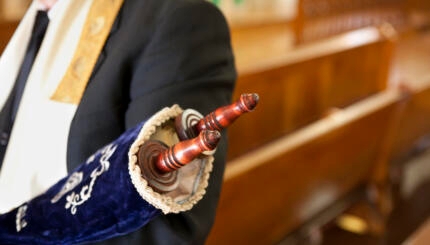
Can Non-Jews Receive Synagogue Honors?
Being called to the Torah for an aliyah and leading certain prayers are, among other synagogue rituals, generally reserved for Jews.
Amen V'Amen
Traditional Judaism Meets Modern Judaism
Home » Bar/Bat Mitzvah Speech from Parents & Family: Step by Step + Examples
Bar/Bat Mitzvah Speech from Parents & Family: Step by Step + Examples
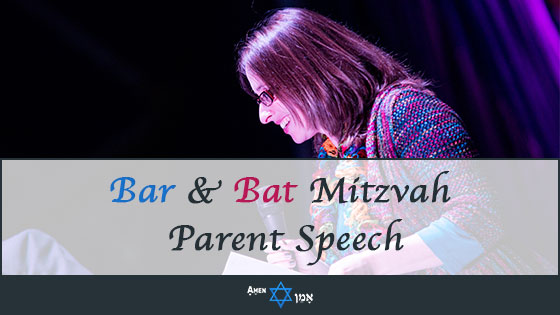
Your child’s big day is around the corner…
I bet you’re excited… it’s a big day!
But hang on a sec…
Are you excited because it’s your child’s Bar/Bat Mitzvah?
Or are you excited (read: terrified ) because you’d like to give your son/daughter a nice Bar/Bat Mitzvah speech, but you have NO IDEA what to say (or where to start)?
I’m about to show you exactly how to write a terrific Bar/Bat Mitzvah speech – step by step (without putting your guests to sleep in the process).
Note: This guide is useful not just for parents. Any family member who’s looking to write a speech for the Bar/Bat Mitzvah: parents, grandparents, siblings, friends… you name it.
Note 2: I also wrote a similar guide that helps Bnai Mitzvah write their speech . Feel free to send it to them if they could use some help.
Table of Contents
Creating the Speech Outline
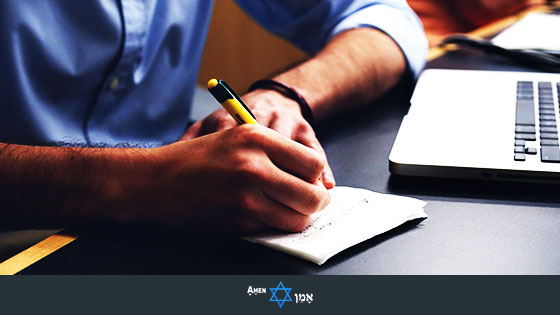
Got your pen and paper ready?
Ready to write a speech that’ll make Stephen King’s novels look like children’s books?
Hold your horses there, tiger!
Before you start burning the midnight oil, you might want to start off with a plan first.
After all… you wouldn’t build a house without drawing a blueprint first, now would you?
So why would you start writing without an outline?
A speech outline gives you structure. And it’s that structure that can save you hours of staring at a blank piece of paper trying to figure out what to write (or say).
Been there, done that, don’t recommendat.
Now… my spider senses tell me that you’re wondering: “OK, genius… how do I create an outline?”
Thankfully, you don’t have to reinvent the wheel. Here’s an outline you can use to write your Bar/Bat Mitzvah speech:
Note: I included a bunch of Bar/Bat Mitzvah speech examples at the end of this article that follows this precise outline.
- Thank everyone for coming . Mention a few names you’d like to personally thank (like your family who traveled from a distance to celebrate with you, your in-laws if you want them to finally like you, or your boss if you’d like to improve your odds of a promotion)
- Start your speech with a hook to capture your guest’s attention (they’re probably on their phones)
- Optional: Slip in a joke if it makes sense (like I just did above).
- Tell a personal story that relates to your son/daughter. Focus your story on your son/daughter’s qualities and likes.
- Optional: Throw a joke or two in the middle.
- Optional: Include a Dvar Torah
- Bless your son/daughter . Tell them how much you love them, and how much you’re proud of them.
- Wish everyone a pleasant evening
- Optional: Wrap it up with another joke for good measure
Now that we’ve got a rough outline – time to think of what we actually want to say.
Brainstorming: Collecting Notes, Ideas & Stories (and Jokes)
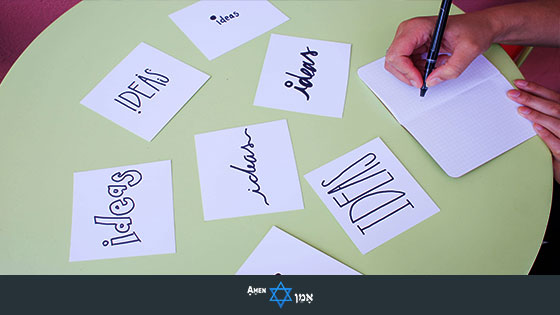
This is the fun part…
This is where you brainstorm & collect everything you’d like to say to your son/daughter on their special day:
- Personal stories & anecdotes from the past
- Lessons, analogies, and metaphors
- Blessings & wishes
Let the creative juices flow.
Feeling stuck? Here are a few places you can draw inspiration from:
- Start with listing “bad” ideas . Good ideas often come from bad ones.
- Go for long walks & take long showers. Cliché, but it works.
- Ask your spouse for ideas. Who else knows your son/daughter (perhaps even better than you do)? Possibly your spouse…
- Ask your son/daughter . Who knows your son/daughter better than you AND your spouse? Yep – your son/daughter. Since it’s their Bar/Bat Mitzvah and you’re about to talk about them, who better to ask than the actual man/woman of the hour?
- See what other parents wrote for their children’s Bar/Bat Mitzvah . Use the example speeches I included below for some inspiration.
Got some notes & ideas written down?
Awesome… now, lock yourself in your office… because you’re about to start writing!
Writing the Speech
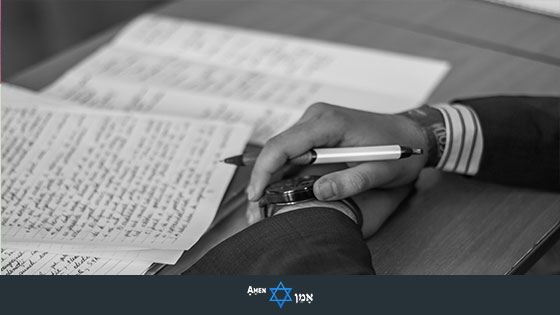
3…2…1 – start writing!
Now that you’ve collected a bunch of stories, ideas, and jokes – it’s time to put them all together and start writing your speech.
Here are a couple of writing tips you can use to write your Bar/Bat Mitzvah speech:
1. Write like you speak
Remember English class?
Good… now throw the textbook out the window and do the EXACT opposite.
Our natural tendency is to try and impress others with our fancy writing, trying to make Shakespeare proud. As a result – you end up walking to the fridge every 2 minutes to check “what’s new” (or worse – you open Facebook) = a.k.a writer’s block .
But here’s the thing…
When you give a speech – you shouldn’t sound like an English professor… you should sound like YOU.
Counter-intuitive, ain’t it?
Could you imagine people listening to your speech, and halfway through wondering: “ who the hell does this guy think he is ?!”
Bottom line : Write like you speak, Bevakasha…
2. Don’t write and edit at the same time.
When you write – write. When you edit – edit.
Writing and editing are 2 different mental processes. Don’t make the classic error of mixing the two of them together – you’ll just slow yourself down and drive yourself crazy.
3. Start with writing the body , then write the intro & wrap up
This is the 80/20 rule in practice: the body of your speech will be around 80% of your speech, so you better start there…
Once you’ve got the body written down:
- You can write your speech intro and smoothly transition into the speech body.
- You can write your speech wrap-up and smoothly transition from the speech body.
It’s like making a tuna sandwich: first, you prepare the tuna, then you wrap it up with the bread.
4. Don’t be boring!
Make your speech short & sweet, not long & tedious. People have short attention spans. If you start rambling endlessly you’ll notice people start to yawn and reach for their phones (if it’s not Shabbat).
Tip: Check out the “Practice, Practice, Practice” section below to make sure you don’t turn it into a snooze-fest.
Take Jacob Green, a Jewish young man from Florida. His little sister recently celebrated her Bat Mitzvah – and his father took the opportunity to play a few jokes on Jacob and his siblings:
“Rachel, I think you know this, but you’re the favorite. And you aren’t just our favorite, sometimes I think you’re everyone’s favorite. Wherever we go, the beach, the supermarket, a hotel – when we leave they’re always seem to be saying ‘bye Rachel,’ or ‘thanks for playing Rachel!’”
But does that mean you have to be a stand-up comedian to not be boring?
Heck no! You can give a terrific speech without forcing your awkward jokes on people.
5. Don’t force jokes if they’re not funny!
Don’t force the joke – spare us the “a Jew and a Muslim walk into a bar” kind of jokes. The joke should either be relevant to what you’re saying or not be said at all.
Embarrassing your son/daughter on their Bar/Bat Mitzvah is a big no-no. You’ll have to live with the consequences (and probably make it up to them with one hell of a Bar Mitzvah gift ).
Editing the Speech
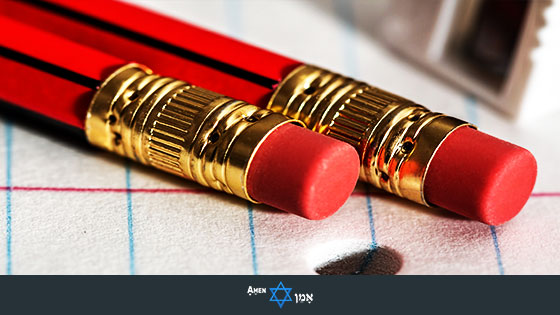
Hooray! You’ve got your first draft written down. Now, it’s time to edit it.
This is where you turn a blurb of text into something worth reading (or in this case, something worth listening to).
Many people don’t know this, but the real magic happens in the editing, not in the writing.
There’s a reason why newspapers and publications have both writers and editors on their payroll… And can’t succeed without the other.
Now, I don’t expect you to hire an editor to write a speech. Unfortunately (or fortunately) you’ll be the writer, editor, and in this case – also the speaker.
Don’t worry, I like keeping things simple.
In fact, to edit your speech effectively – all you have to do is remember RRRR (the 4 R’s) :
- Remove: Get rid of words or sentences you don’t need
- Rewrite: Rewrite complicated sentences to make it sound natural. Remember – this is a speech, not a college essay. Leave the complicated words out.
- Reorder: If a sentence breaks the natural flow of the speech, try moving it someplace else
- Repeat: Repeat until you’re satisfied.
Finally, proof read your speech to make sure it sounds good. Notice I highlighted the “read” part. This is a speech you’ll actually read out loud, not just submit to the local newspaper. Make sure it reads properly.
Tip: Don’t be a perfectionist about it. Your speech should sound authentic, not like a 1980’s radio news report.
Practice, Practice, Practice
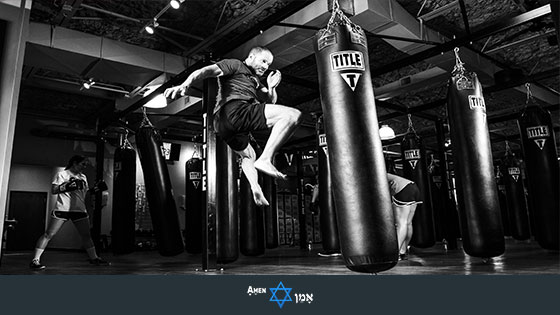
Repetition breeds skill.
No, I didn’t hit CTRL+C and CTRL+V 3 times by accident. This was intentional – to illustrate how crucial it is to practice your speech and repeat it several times .
Here are a couple of speaking tips to keep in mind while you practice:
1. Time yourself
Measure how long the speech takes.
Ideally, you’d want to keep it somewhere between 3-10 minutes. Otherwise, your guests will get impatient and bored (otherwise you’ll have to make it up to them with some pretty cool Bar/Bat Mitzvah souvenirs )
If it’s too long, edit your speech and try to make it shorter and snappier (remember RRRR ).
Your mirror is your friend. Practice giving your speech several times in front of the mirror, until it sounds “right”.
Tip: Your spouse is your 2 nd best friend (that sounded weird). Read your speech to your spouse to give you some cold-hearted truth.
2. Look at your son/daughter and your guests, not at your notes
If you haven’t practiced your speech properly – you’ll constantly go back and forth between your son/daughter, your guests and your notes.
That’s why practicing your speech is so important.
You’ll want to memorize your speech to the point where you (almost) know your speech by heart.
That doesn’t mean you shouldn’t have your notes with you when you speak. But use it as a helper, not as a guide.
3. Speak with emotion
You’re probably already emotional, so that should be easy.
Just don’t be afraid to show it.
Note: Yes, I’m talking to you dads out there who don’t like to show their feelings.
4. Match your body language and tone of voice to the words you’re saying
People overestimate the importance of the words and underestimate the importance of tone and body language.
A famous study from 1967 (!) showed that words are responsible for only 7% of personal communication (feelings and attitudes), while body language and tone of voice are responsible for 55% and 38% respectively.
- If you’re sharing a personal story – speak with emotion.
- If you’re telling a joke, tell it with a smile on your face.
- If you’re sharing a sad story, speak gently (and wipe that smile off your face).
In other words: don’t be a robot.
5. Be yourself
Be authentic. Don’t try to sound like someone you’re not.
Say what you feel and feel what you say.
Bar/Bat Mitzvah Speech Examples
Bar mitzvah speech example #1:.
This Jewish mother from LA shared the unique speech she gave her son, a computer gamer, for his Bar Mitzvah.
Take Notes: Notice how she uses a combination of stories, analogies, metaphors (from the Gaming world, of all places!).
Hello everyone and thank you so much for joining us for Michael’s Bar Mitzvah.
Now, I know for most of you, this isn’t your first time at the rodeo.
But for myself, my husband, and my extended family, Michael is the first Bar Mitzvah in decades!
I also know that many of the friends that have joined us here today have never been to a Bar Mitzvah or if they have they might not realize the whole tradition of the Bar Mitzvah ceremony . So I thought I would spend a little bit of time explaining what a Bar Mitzvah is, why we do it, what we are celebrating, and so on and so forth.
In essence, a Bar Mitzvah is the beginning of a child’s spiritual maturity. When boys are younger than age 13, and 12 for girls because everyone knows girls are more mature than boys, they are unaware of their spiritual selves. But after 12 and 13, a child, now a very young adult, can begin to form their morals, their values, and their spiritual beliefs.
Michael has been studying Hebrew and the Torah for pretty much his entire life. He actually had to memorize his Torah portion in order to be able to read it up here at the bimah!
As someone who has a terrible time remembering things, I find this feat to be extraordinary. But honestly, according to his father and I, Michael pretty much HAD to have a Bar Mitzvah. Everything in his life has been more or less controlled by myself, his father and to a certain extent his teachers and rabbis. Up until now, Michael’s life hasn’t really been fully his.
But now Michael is 13! He is leaving behind the era of being a child completely run by adults and is beginning to be able to spread his wings.
Like me, Michael was born wanting to control his life more than either his father or I really wanted him to. And now, finally Michael, you can begin to take control of your life starting with figuring out what kind of man you want to be.
The foundation of your morality has already been built through 13 years of teaching from your parents and from learning about Judaism. Now is the time you will learn who you really want to be and what kind of man you will become. But the good news is you don’t have to do this alone.
Even though you are now free to make more decisions on your own, you still have us, your family and your community to be here to help you when you get stuck. You have a wealth of love and knowledge sitting right here, celebrating you and your life!
The beauty of a Bar Mitzvah is it is the ending of one part of your life – being a child – and the beginning of the next chapter – learning how to truly be a good adult.
- Instead of just sitting in class and learning, you are now able to teach those who are younger than you.
- Instead of memorizing lines from your parsha , you can now begin to understand the meaning behind them and start to question things.
You are someone that has always needed to know what the boundaries are in any given task. You are now free to create some of those boundaries yourself instead of waiting for someone to tell you what they are!
Turning 13 means you’ll be able to fulfill more Mitzvot, such as the wearing of Tefillin …
The purpose of the Tefillin is to, besides becoming closer to G-d, connect the heart and the mind together.
As they say in the Spider-Man comics, “with great power comes great responsibility”.
Michael, you’re now about to begin a new era in your progression as a man.
The Tefillin isn’t another thing you have to do because you are Jewish and your father and I said so, it is a want to. You can choose to put it on, or not. But as someone who was born already possessing the abilities the Tefillin will help you acquire, let me tell you – it is worth it.
Frankly, I believe you, Michael, have already begun to develop as a man. Your growth this past year in school has been absolutely remarkable. Your father and I did our best to figure out how we could best support you as an individual, but ultimately the hard work was entirely up to you. And you did it!
Watching you blossom this year has been one of the most rewarding things I have seen in my life and I am honored that Hashem has blessed me with such a wonderful son.
Now I have a story for you:
This was back in the early sixties when the first mainframe computers were being introduced into business. Professor Abraham Polichenco, a pioneer in computer technology, visited the Lubavitcher Rebbe and posed a question to him:
“I know that everything that exists in the world, even something that we discover later in history, has its source somewhere in the Torah. So, where are there computers in the Torah?”
Without hesitation, the Rebbe answered, “Tefillin.” The professor was perplexed.
“What’s new about a computer?” the Rebbe continued. “You walk into a room and you see many familiar machines: A typewriter, a large tape recorder, a television set, a hole puncher, a calculator. What is new?
“But under the floor, cables connect all these machines so they work as one.”
The professor nodded enthusiastically. He hadn’t realized it before, but yes, this is all that a computer is: A synthesis of media and processing devices.
“Now look at your own self. You have a brain. It is in one world. Your heart is in another. And your hands often end up involved in something completely foreign to both of them. Three diverse machines.
“So you put on Tefillin. First thing in the day, you connect your head, your heart and your hand with these leather cables — all to work as one with one intent. And then when you go out to meet the world, all your actions find harmony in a single coordinated purpose.”
Michael, I know how much you adore computers and gaming. So, I am going to take the analogy of computers and Judaism a little bit further than the Rebbe did. I believe one could make an argument, that being a Jew is the ultimate in computer gaming!
You laugh but hear me out.
What is it about playing games on the computer that makes you so passionate about it? I think one of the reasons is the feeling of community you get when you’re working with your friends on a team to beat another set of virtual characters.
Judaism has the same thing! When we celebrate Shabbos every Friday night and make the prayers on the candles and bread and wine, we’re connecting to every other Jewish person on the earth who are also doing the exact same thing we are doing.
Do you remember the scene in Harry Potter when all of the good guys raise their hands up towards the sky and the light blows away the evilness of Voldemort?
That is kind of what I think happens when we light the candles on Friday night. The spirit of every Jew working together will be what brings Mashiach, right?
Another thing you enjoy playing video games is the challenge of learning how to win at the various levels. One more level mom! Turns out Judaism has the same thing!
The Zohar, otherwise known as the Jewish book of mysticism explains:
Viewed from the point of view of man’s service to G‑d, the levels of the soul may be described as five ascending levels of awareness of, and communion with, G‑d. They are called (in ascending order) Nefesh, Ruach, Neshama, Chaya, and Yechida. Regarding these levels of soul, the Zohar states that when a person is born, he’s given a Nefesh from the world of Asiya, the lowest world, representing the greatest concealment of G‑d.
If through his divine service and proper action, he makes himself worthy, he is then given Ruach on the plane of Yetzira. With greater effort, he can earn the revelation of Neshama, paralleling the world of Beriya. If he purifies himself greatly, he may be able to attain the level of Chaya paralleling Atzilut, and even Yechida — the G‑d consciousness of the level of Adam Kadmon and beyond.
Look, I barely understand what any of that means! But I DO know that if you continue to study and learn Torah, continue to be a good person and choose the right thing to do, you will eventually “level up” with your commitment and connection to G-D. And THAT is really something!
Michael, when you “win” a computer game, that gives you a strong sense of accomplishment. You DID something! You WON! Judaism can do the same thing for you. When you choose to eat a kosher meal, you are automatically winning! When you put on tefillin, you are winning! When you come to service and daven, you are winning! There are so many ways, 613 to be exact, that you can “win” at
Judaism! Now THAT is a game worth playing!
So, as I have just explained to you, Torah is really the ultimate “game”. One that I think you excel at playing. So today, on your Bar Mitzvah, I hope you understand that this is the ending of your have-to’s and the beginning of your want-to’s.
And if you choose to continue with your Jewish learning, there is no telling what you can accomplish.
Michael, I love you with all of my heart. I am so proud of you and may you be blessed with health and happiness for all the days of your life!
Bar/Bat Mitzvah Speech Example #2: Short, Sweet & Funny
This is a speech given by Ronny, a father from Hartford, CT, who gave this speech on his son’s Bar Mitzvah.
Take Notes: Notice the witty jokes and the length of this speech: short, sweet and to the point.
Thank you, everyone, for joining us tonight in celebrating our beloved son’s Bar Mitzvah.
If you don’t mind, I’d like to say a few words to Yosef…
My dear son Yosef,
You’re celebrating your coming of age today… and because of that, look what happened – you forced your family from all over the world to come to your Bar Mitzvah.
But don’t worry, they have nothing to complain about. You’re our one and only son.
Could you imagine if they had to fly over and over again?
Yosef, I don’t know if you know how proud I am of you and everything you’re doing:
For those of you who don’t know: Yosef is at the top of his class, at the top of his Judo team and pretty much everywhere else.
Everyone knows that and sees that… But what no one sees is the hard work you put into everything do.
You’re a very talented young man… but talent can only get you so far in life.
It’s the talent, combined with your hard work that makes you so successful.
Sometimes your mother and I argue who you got it from (clearly, it came from me).
You inspire us and everyone around you to do dream big and do greater things.
And let me tell you…
In fact, I PROMISE you: if you keep working hard throughout your life, you’ll achieve amazing things… in life, in Torah, in Judo, everywhere…
Hard work – works.
I’m so proud of everything you’ve accomplished, and everything you’ll accomplish in the future.
I’m proud to be your father. Or, rather, I’m proud that you are my son…
I’ll always be in your corner and be your biggest cheerleader (I might even dance like one and embarrass you in front of your friends if I drink too much tonight)
Your mother and I love you very much… Forever and always!
Bar/Bat Mitzvah Speech Example #3: The “Non-speech” Speech
Who said you have to give a speech, to begin with?
Miriam Snyder, a cantorial soloist from LA, gave me an interesting example from her son’s Bar Mitzvah:
You don’t have to make your guests cry on purpose… but hey, if you’re America’s next rising star (or whichever country you’re from) – then go hit the stage!
More Bar/Bat Mitzvah Speech Examples
Take a look at this Bat Mitzvah speech given by famous TV & game show producer, Bob Boden (The Chase, Jeopardy & others):
Take Notes: He uses his TV persona in his daughter’s blessing. Short, witty and emotional all at the same time.
Here’s a good example of a father telling the emotional story of his Bar Mitzvah being born. Notice the authenticity in his story, and the way he masterfully uses his tone of voice with the words he’s saying.
Take Notes: Storytelling at its best: authentic, engaging and entertaining.
See… that wasn’t so bad, was it?
Writing a great Bar/Bat Mitzvah speech is easy if you have the right system.
Simply follow the steps in this article, and you’ll have an awesome speech ready in no time.
Note: It will definitely take you less time than it took me to write this article 🙂
And after you’re done writing your speech – I’d love for you to share it in the comments below… I’ll be more than happy to add it to the article!
How does that sound? 🙂

You May Also Like
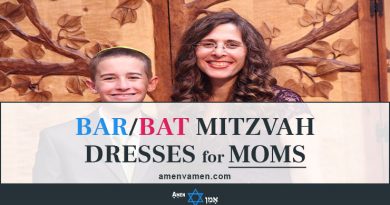
13 Gorgeous Dresses for the Mother of a Bar/Bat Mitzvah (2022)

24 Unique Bar/Bat Mitzvah Party Ideas on a Budget (2022)
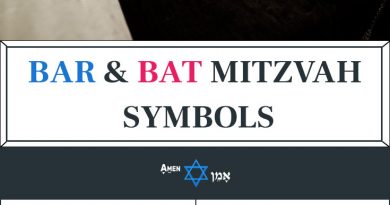
10+ Bar/Bat Mitzvah Symbols & Signs (And What They Really Mean)
One thought on “ bar/bat mitzvah speech from parents & family: step by step + examples ”.
i am looking for a funny poem for my brother yaakov his bar mitzvah is this week on friday night but i want a funny poem
Leave a Reply Cancel reply
Your email address will not be published. Required fields are marked *
The Parents’ Role in a Bar/Bat Mitzvah Service
Traditionally, the father recited one blessing during the service, but today parents are often much more involved., by rabbi daniel kohn.
In a strictly traditional bar mitzvah celebration, the role of the bar mitzvah parents (usually, just the father) during the worship service is to recite a blessing, baruch she-p’tarani , declaring the child to be liable for his or her own actions, according to Jewish law. (In traditional circles, girls do not participate ritually in the service and hence do not usually receive this blessing.) In liberal synagogues, parents often say only the shehecheyanu blessing, thanking God for being alive to celebrate the occasion, and some are taking on new roles, like presenting a tallit (ritual prayer shawl) to their child and leading parts of the service.
The Father Traditionally Recited a Single Blessing
The baruch she-p'tarani blessing reads, "Praised are You, Adonai our God, ruler of the universe who has excused me (from being liable) for this one (meaning, the child).” The blessing was traditionally recited by the father, and today is said by both parents in some liberal synagogues. The blessing has two forms, one that mentions God's name and one that does not. Although this seems like a rather strange and perplexing blessing for parents at their child’s coming of age ceremony, it is entirely consistent with the spiritual significance of the event.
In traditional Judaism, children before bar/bat mitzvah age are exempt from the spiritual obligations of observing the Jewish mitzvot , or commandments. This means that children are not required to fast on Yom Kippur, observe Shabbat (Sabbath) prohibitions, or perform other religious rituals, although in actuality children are slowly be educated about the commandments and inculcated into their eventual observance.
When children attain their Jewish legal majority, or adult status (at age 12 for a girl and 13 for a boy), they become legally and morally responsible for their own actions and religious observances in the eyes of God. At the same time, the parents are no longer responsible for any sins committed by the child. When parents recite baruch she-p'tarani , they are publicly declaring their children to be both ritually and legally responsible adults in the Jewish tradition.
For some rabbis in the liberal movements, the concept of religious liability no longer resonates, and they have chosen to omit this blessing. Yet others are either encouraging its use or offering it as an option. These rabbis are re-visioning the meaning of the blessing in a more modern context--as symbolizing a new stage in the child’s life and in the parent-child relationship. It is a form of “letting go,” in which children are becoming their own persons and must make their own moral judgments. To make the blessing more palatable to the modern ear, some of these rabbis have developed kavvanot (spiritual preparations) to introduce it or new translations of the blessing itself.
In the liberal movements, most parents recite the shehecheyanu , which reads, “Praised are You, Adonai our God, ruler of the universe who has kept us in life, sustained us, and brought us to this day.” In fact, Jews recite this blessing at every momentous occasion and holiday, thanking God for the privilege of being alive to celebrate the event. Because of the joyous nature of this blessing, it is a significant moment in many bar/bat mitzvah celebrations in synagogues around the world.
Expanding the Parental Role With New Traditions
Over time parents have taken on new roles in their children’s bar/bat mitzvah celebrations, which vary by synagogue and community:
1. Presentation of a tallit. The tallit is worn by adult Jews over the age of bar/bat mitzvah, though some traditionalist Jews don't wear one until marriage. In some synagogues the parents publicly present their child with a tallit on the occasion of his or her first worship service as an adult Jew, sometimes accompanied by a few personal remarks to their child.
2. Passing the Torah through the generations. When the Torah is removed from the ark, many communities invite the grandparents and parents of the child to the bimah (pulpit) and physically hand the Torah from one generation to another--symbolizing the chain and continuity of the Jewish tradition within families.
3. Receiving aliyot to the Torah. Receiving an aliyah --that is, being called to the Torah at a Shabbat morning service to recite the blessings before and after the ritual chanting of the weekly Torah reading--is the essential ritual activity of the bar/bat mitzvah at the worship service. To honor the parents and make it possible for them to be at the reading table during their child's aliyah and Torah reading, a custom has developed for the parents to receive an aliyah.
4. Participating in leading the worship services, along with other family members. While nepotism is generally frowned on in the business world, the celebration of bar/bat mitzvah is considered an ideal opportunity for other members of the family to participate in the worship services. Family members, including parents, brothers and sisters, as well as more extended family members, may lead parts of the worship service, chant other sections of the weekly Torah reading, or lead English readings.
5. Making speeches to the bar/bat mitzvah child. At the end of worship services involving a bar/bat mitzvah celebration, many communities invite the parents to the bimah to share a few personal words of reflection and blessing with their child before the entire community.
These rituals are merely custom and vary from one synagogue to the next. Some are even considered controversial, as their inclusion lengthens the worship services and turns a public, communal worship service into a seemingly private event. Other communities value these customs as they emphasize the transformation of children into fully participatory adults in the Jewish community. In either case, the celebration of bar/bat mitzvah in modern synagogue worship services continues to be a case of evolution, change, and development.
Rabbi Daniel Kohn, a native of St. Louis, Missouri, was ordained at the Jewish Theological Seminary of America in 1991. He is the author of several books on Jewish education and spirituality, and currently writes and teaches throughout the San Francisco Bay area.
- Live Stream

- Voting Participation
- Bar and Bat Mitzvah
Bar and Bat Mitzvah FAQ
- Jewish Trails
- "Texting" - High Holy Day Prep
- Jewish Wedding
- Shabbat Oneg and Service
- Mussar/Torah Study
- 3M 12:00 pm M & Th Meditation, Music, and Mi Shebeirach
- Audio Libraries
- Friday Evening Prayer Book
- Hear Our Voice
- Spiritual Vaccines
- Logging into Your Account
- Logging in to the CSK Mobile App

The Bar/Bat/"B" Mitzvah experience at Shma Koleinu
Whether in ancient or in modern times, parenting children is one of the greatest responsibilities and privileges with which parents, teachers and mentors are bestowed. In the Jewish tradition, the Bar/Bat/B Mitzvah* represents a wise and significant passageway towards that end.
At Shma Koleinu, we give this immensely significant milestone tremendous importance. As Jews in the 21st century, we believe that the B'nai Mitzvah experience should feel like a journey that leads the individual child and family to even greater heights than they had imagined possible. Shma Koleinu is very proud of the B’nai Mitzvah experience we make possible for our families.
(*For purposes of clarity, the use of “Bar/Bat/B Mitzvah” will also refer to the child him/her/their self.)
How do CSK Bar/Bat Mitzvahs work and what makes them unique?
The term Bar/Bat/B Mitzvah literally means “son/daughter/child of the commandments.” It is typically referred to as the ceremony of becoming a Jewish adult. According to tradition, the Bar/Bat/B Mitzvah is responsible for their own Jewish life; however, the moment a young Jewish child is officially recognized as a Bar/Bat/B Mitzvah is not when they chant Torah or deliver their speech, or even when they wake up on their 13th birthday. Official recognition as a Bar/Bat/B Mitzvah occurs for the child when they are able to offer a prayer on behalf of fellow Jewish adults. Thus the milestone of becoming a Bar/Bat/B Mitzvah is recognized when the child chants the prayers before and after the reading of Torah, to which everyone responds, “Amen." Judaism teaches us that this is what becoming a [Jewish] adult actually means: to be one who can speak for others, and to whom others are willing to say “Amen” (or, kind of like it sounds, “I’m in”).
With that in mind, it is very important that the Bar/Bat/B Mitzvah comes to understand that this experience is both a mile marker as well as a gateway. It is our intention that all B’nai Mitzvah students develop a prayer-fluency with Shabbat liturgy, and it is our hope and expectation that these young Jewish adults will have many opportunities to join Jewish communities anywhere in the world and feel at home.
Additionally, it is crucial that the students feel they are personally represented in the B’nai Mitzvah experience. To this end, they will meet with Rabbi Scott to:
- With the guidance of Rabbi Scott, choose their own Torah reading (from the week’s Torah portion).
- Study commentaries and engage in discussion on the Torah portion’s historical/textual/ethical implications, as well as it’s personal meaning to them.
- Write a meaningful and personally relevant D’var Torah (speech).
- Choose a prayer and write a creative commentary on that prayer.
- Prepare and deliver a short “Thank You” as part of the “Hodaah” (Gratitude) section of the liturgy.
Families, as well, are personally represented in the B'nai Mitzvah service in several ways.
- A special family member/friends (often grandparents) are invited to make a brief presentation of the Tallit (prayer shawl) to the Bar/Bat/B Mitzvah at the opening of the service.
- Parents are invited to deliver a message to their son/daughter/child on this very special day.
- Members of the family and special friends can be invited up to the bima (stage) for aliyot (the blessings before and after the Torah readings) and other honors.
- Families are invited to write and distribute a welcome letter to the congregation, as well as provide a list of names of deceased loved ones to be shared by Rabbi Scott prior to the Kaddish prayer.
What prayer book does Shma Koleinu use?
Shma Koleinu is proud to offer two prayer book options for families to choose from for use in our B’nai Mitzvah Shabbat services; the “Shma Koleinu Shabbat Morning prayer book” or "Terumot Halev," a beautiful hardbound prayerbook originally published for Temple Emanu El in Birmingham, AL (where Rabbi Scott served in his first pulpit). B'nai Mitzvah and families are welcome to choose one or the other.
How does Shma Koleinu work to prepare my child for their Bar/Bat Mitzvah?
Click here to read all about Journey: the Jewish Discovery Project .
What does a Shma Koleinu Bar/Bat/B Mitzvah cost?
To help ensure that your children are well prepared and the parents are well supported, Rabbi Scott and Alison Altenberg (B'nai Mitzvah Coordinator) work with all of our Bar/Bat/B Mitzvah students. Rabbi Scott makes himself available via Zoom as often as possible, and regular Hebrew tutoring will be provided by Alison on Sunday mornings at Journey. Additional tutoring can be made available as needed through referrals to tutors (to be paid by parents).
CSK charges a nominal "B'nai Mitzvah coordination fee" of $600, and a "Non-Journey BM fee" of $2500, if the child is not enrolled in Journey. If enrolled in Journey, for every 7th grader, the Journey tuition of $1200 includes the B'nai Mitzvah Coordination services ($600 enrollment + $600 for the B’nai Mitzvah coordinator.)
How old does my child have to be for their Bar/Bat Mitzvah?
An Early 20th Century Hassidic Rabbi taught :
The Hebrew letter Alef is one, the letter chet is eight, and the letter Dalet is is four. Together, they spell Echad, the Hebrew word for “one.” When you add them up, they total thirteen. Jewish tradition teaches that thirteen is the first time you can be “one,” it is when you are beginning to take control of the various parts of yourself – the different feelings and urges- and point them all in one direction. Thirteen is when you first start to get it together. It should be when one starts to work on being a unity.
Our sages were right that something very important is happening right around the 13th year, give or take about 6 months. Our children, while still a bit sensitive and naïve, are also showing signs of both wisdom and compassion. We encourage you to consider a Bar/Bat/B Mitzvah date that is close to your child's 13th birthday, and while it is true that our tradition teaches that girls can become Bat Mitzvah as early as 12 years old, a bit more growth and maturity is often helpful. The ideal time to consider is the six months surrounding your child’s 13th birthday (3 months on one side and 3 months on the other). That said, we will work with each individual family to make the timing work as conveniently as possible.
Shma Koleinu welcomes families to sign up for B'nai Mitzvah dates as early as two years prior to your child’s 13th birthday. Families are not required to sign up this early, they are just invited to do so.
To make date requests, please email Rabbi Scott .
Where can I have my child’s Bar/Bat/B Mitzvah service?
As you know, Shma Koleinu does not own a building. Therefore, one of the aspects that makes a Shma Koleinu Bar/Bat/B Mitzvah unique is that they always take place in varied locations. So, yes, there is a bit of extra organizing that must take place but at the same time, the sky's the limit! The short of it is that, minus a moon landing (we’re still waiting on Elon Musk’s Bar/Bat/B Mitzvah Shuttle), a Shma Koleinu Bar/Bat/B Mitzvah can take place close to anywhere. Don’t believe us? Here’s a short list of venues where we have celebrated Shma Koleinu B'nai Mitzvah thus far!
- First Unitarian Universalist Church (Museum District)
- Temple Shalom, Lafayette, LA
- Dave and Buster’s Banquet Hall
- Southside Place Community Center
- Houston Congregation for Reform Judaism (if available, will not officially book their sanctuary until 6 months prior to date)
- Talento Bilingue de Houston
- B'nai Israel, Galveston
- And even Kenny & Ziggys
…Just to name a few
Shma Koleinu will make sure that you and your family have all that you need to hold your child’s Bar/Bat Mitzvah service anywhere (mostly!)
What will Shma Koleinu do to support my child and my family to prepare us for this special day?
- We will work to assure your child’s Prayer Fluency.
- We will work to assure your child’s comfort and ability with their Torah and Haftarah Chanting.
- We will assure your child’s completion of their D'var Torah (speech).
- We will assure that your child’s personal prayer commentary is written and prepared.
- We will assure that your child’s Thank Yous are written and prepared.
- We will share the names of deceased family members prior to Kaddish Prayer (provided by the family).
- We will assure that your child has a Tallit and will Coordinate its Presentation.
- Prayerbooks
- Torah Table
- Sound System
- White linen tablecloths, round and long (these are provided at no cost, family returns laundered and folded).
- Kippot (Yarmulkes)
- Schedule 2 Bar/Bat Mitzvah Rehearsals - One with Bar/Bat Mitzvah student about 7-10 days out and One with BM and Family about 1-2 days out preferably at Bar/Bat Mitzvah service venue
- Arrange for Bar/Bat Mitzvah to have access to Bar Mitzvah Tutor
- And since COVID, we can offer you Zoom broadcast for any family or friends who are unable to make it into town.
If your venue requests it, Shma Koleinu carries liability insurance which can be utilized for your rental. There is no extra cost to name the venue as secondary on the policy for that day as long as the contract is between Shma Koleinu and the venue. In this case, the family would pay Shma Koleinu which would then, in turn, pay the venue.
Ideal B'nai Mitzvah Timeline:
1 year prior to date: .
- Assess your child’s Hebrew proficiency
- Begin the planning process including review of B'nai Mitzvah service order and honors
- Set forth a schedule for Bar/Bat Mitzvah tutoring with Rabbi Scott.
9 – 6 months prior to the date (depending on the child’s proficiency):
- Begin Bnai Mitzvah Tutoring
- If a child is attending camp, arrangements made for practice schedule
8 months prior to date:
- Meet with Rabbi Scott for an introduction to Torah portion and receive the initial reading assignment to read English translation of Torah portion, making notes and identifying at least three sections the student finds interesting
- 1-2 weeks later, meet with Rabbi Scott to discuss the student's notes, questions and points of interest from Torah Portion and to decide Torah reading
- Proficiency in prayers & beginning of Torah Portion (about 7 months), prayers will be reviewed at each lesson
7 - 2 ½ months prior to date :
- Begin to learn Torah reading and chanting, depending on the length of the Torah Portion, 1-2 weeks per each verse of Torah (includes the chanting and learning without vowels)
5 - 3 months prior to date:
- Begin to learn Haftarah reading/chanting
4 months prior to date:
- Meet with Rabbi to discuss Torah reading and begin the process of developing the first draft of D'var Torah (speech)
- Send the first draft to Rabbi Scott 2 weeks after meeting
3 months – 2 months prior to date:
- Speech completed, personal prayer & Thank Yous
2 months – 1 month prior to date:
- Rehearsals with Rabbi Scott
A Word on Invites
At Shma Koleinu, we strive to develop and build a strong and vibrant community. At Journey, as well, we hope that our students, parents and Journey Guides feel that they are part of a family. To that end, we at Shma Koleinu strongly encourage B'nai Mitzvah families to extend their invitation to their child's classmates and if the parents are so moved, to their Journey Guides as well.
Wed, April 3 2024 24 Adar II 5784
Upcoming Programs & Events
Shabbat mevarchim & parshat hachodesh.

Home | About | Donate | My Account
Rabbi: Scott Hausman-Weiss r [email protected]
Shma Koleinu, PO Box 1808, Bellaire, Texas 77402-1808
Privacy Settings | Privacy Policy | Member Terms
©2024 All rights reserved. Find out more about ShulCloud
- Couples & Weddings
- Parents & Families
- Organizations
- 18Doors Local & Events
- Find a Rabbi
- About 18Doors
Significance of the Tallit (Prayer Shawl)
The tallit (sometimes called a “ tallis ” with an Ashkenazic pronunciation ) is a garment one can wear to create a sense of personal space during prayer. By wrapping yourself in it, or by covering your head with it, the intention and direction of your prayers can be enhanced. The tradition is that the tallit is worn only during the morning prayers, though it is also worn for the evening Kol Nidre service during Yom Kippur. The garment can be made out of linen, wool, silk, or synthetics, so long as the biblical prohibition against the wearing of clothing combining linen and wool is observed.
It is not the garment itself, whether beautiful and adorned or plain and simple, that makes the prayer shawl special. What transforms a piece of cloth into a tallit are the tzitzit , the fringes on its four corners. The Torah instructs us to wear these fringes on the corners of our garments; that we will see them and be reminded of all God’s commandments ( Numbers 15:37-41 ). The mitzvah (commandment) is to remember God, to further holiness in our lives, and to keep the commandments; the tzitzit are the visual reminder. The tallit is not worn at night because we are supposed to “see” the ritual fringes by daylight.
Receiving a tallit can be a wonderful moment during a bar or bat mitzvah. Here, Stella receives a tallit from her grandmother at her bat mitzvah and it becomes a focal point of the ceremony.
You might also find our Blessing for Putting On Tallit helpful, with audio and English transliteration of the blessing as well as a video.

Other Articles You May Like


Love Changed My Insecurities About Religion & Cerebral Palsy

Unplug for Less Doing and More Being

I’m Jewish but Go To Church on Christmas—Here’s Why

Do Today’s Women Understand What/Who Came Before Us?

Time to Junk Jewish Jargon?

Why are We Terrified to Teach Our Kids about Religion?

Author: 18Doors
Stay in the know..
190 North Main Street Suite 203 Natick, MA 01760 (617) 581-6860
About Contact Careers Find a Rabbi Donate Clergy Login

Terms of Use | Privacy Policy Copyright © 2023 18Doors.org EIN 043-577816
- Macy’s
- Favorite Links
- Baby Gender Reveal Party
- Coco Birthday Party
- Horse Racing
- Llama Llama Party
- Puppy Kisses
- Twinkle Twinkle Little Star
- Wonder Woman
- Woodland Animals
- Baby Shower
- Children’s Parties
- Quinceanera
- Food & Drink
- Party Pretty

Bar and Bat Mitzvah Parent Speeches
Sample bar and bat mitzvah parent speeches.
Most temples offer the parents of the Bat Mitzvah girl or Bar Mitzvah boy an opportunity to share some words of wisdom. Even if you are the best contemporaneous speaker on earth, we always recommend jotting down your thoughts. We have attended hundreds of B'nai Mitzvot and have never, ever seen a parent speak who was not feeling intensely emotional at the moment. If you take no other advice from PartyIdeaPros.com, please give yourself plenty of time to mull over what you would like to say to your child and write it down!

After many requests for sample speeches we are beginning to compile the best of the best. If you would like to help out other parents searching for inspiration, please submit your speech to [email protected] for consideration. We will publish the best of the best!
Bar & Bat Mitzvah Parent Speeches >> Sample 1
Your child's name –
When we began this journey, we viewed today as an individual rite of passage — a celebration of your birthday, the legal age in which you assume a role of responsibility in the Jewish community, and a celebration of your hard work and your efforts, and especially all of your enormous accomplishments. But with time, it became clear that this celebration is really much larger than just that – for mom and me, it is about trust in G-d.
At first we wondered, why this Torah portion. The answer … maybe it’s meant to be. Mom would say, “it’s b’shert.” As you well know, and will discuss later this morning, this week’s Torah portion is from Leviticus, the rulebook of the Torah. And although Leviticus lacks the great stories of Genesis and Exodus, those who know you well and understand you, would probably agree that this is your book. It provides structure and purpose to life’s vagaries. It elevates events of daily life to a higher moral ground.
You do best when life is unambiguous – You like clarity and lucidity. The clearer the rules the better. You welcome and find merit in ritual and easily appreciate the Torah’s bigger lessons. We proudly watched as you grew to understand just how valuable the weekly parsha, even this seemingly archaic portion, could be in your daily life. We hope that you will continue your studies and will continue to turn to the Torah throughout your life, for the sheer joy of study, for answers and for questions and mostly, for hope.
Today, in this temple, a house of worship and ritual, you join them. It is your turn to be encircled by family, friends and community – some of whom have never even met you, and yet were willing to make the effort to be here with us. We are all here to witness and celebrate with you, as you represent our trust in G-d, our hopes, our dreams. You are the promise. We watch you embracing the torah, the cornerstone of our faith, with joy and comfort, knowing that you will strive to live by the values it teaches.
The Torah is the authority that guides our choices in life. You will have many choices in your life. We have come to trust your judgment and your choices. But throughout your life you will be thrown curveballs, unexpected events happen. Remember that Leviticus and its rules is just 1/5th of the Torah, much of the Torah is about life unfolding and learning how our ancestors dealt with the life’s challenges, sometimes successfully and sometimes not. We want you to know that Mom and I will always be here for you as your life unfolds.
We also want you to know that family and friends are here for you too. Your child's name , may you endeavor to be a good person. Remember that all G-d really requires from you is your just actions. It really is pretty black and white – it’s about mitzvot, it’s about your deeds.
It is about respect for and pride in your heritage, and living an ethical, balanced life with honor, integrity, and laughter.
May you learn from those that came before you and from the example of those around you today. May you wear our dreams as comfortably as you wear your tallit and carry on our hopes, and may you, too, always trust to G-d.
B'nai Mitzvot Parent Speeches >> Sample 2
Your child's name , in your Torah portion, Moses says, “Dedicate yourselves to the Lord this day … that he may bestow a blessing upon you today.” And here we stand. You, like your Mom and I before you, and your grandparents before us and their parents before them, dedicating yourself to G-d. Looking out we can see just how blessed you are, surrounded by friends and family who love you and are here to support you. Know Mom and I will also always be here whenever you need us and even sometimes when you don’t think you need us. But today, we are all here to witness your commitment to G-d and the Jewish people and to celebrate with you. We watch you, embracing the Torah, the cornerstone of our faith, with joy and comfort, knowing that you will strive to live by the values it teaches.
From the day you were born, we intuitively knew you were especially blessed by G-d. And we were right. You have so many talents `… you are bright, you are creative, you are funny, you are athletic and you are a natural leader. We hope you recognize, celebrate and cherish these blessings as gifts from G-d to be used wisely and responsibly. Look to the Torah as inspiration and guidance as you face the daily joys and challenges of your life.
We know you love a good story and are drawn to the larger than life epics which unfold in the books of Genesis and Exodus. Embrace not only the stories, but also their lessons. Emulate the mighty intellect and conviction of Moses. Nurture the compassion and leadership skills of Aaron. And in these times of doubt and turmoil, adopt your ancestors trust in G-d. As your life unfolds, we hope you will more and more learn to value the other books in the Bible, too … yes, even the books dealing with the laws and rules. The Torah is the authority that guides our choices in life. The Torah teaches both balance and structure.
We hope you turn to G-d and the Torah to find that balance and to create structure in your own life, for you will need both to fulfill the promise in you, to find the holiness within and to appreciate, cultivate and celebrate the very special blessings G-d has bestowed upon you.
Not only do you have the writings and teachings of the Torah to turn to for guidance, you are encircled by family and friends who, too, have dedicated themselves to G-d: striving to live ethical, balanced lives with honor, integrity and laughter. You are surrounded by loved ones who are what Nanna and Bubbe, might call mentsches. You are blessed to have such wonderful role models.
And your child's name , no boy called to the Torah as a Bar Mitzvah, could have better role models than your grandfathers. Both are professionally accomplished and successful. Both Grandpa and Popol are cherished by those whose lives they have touched. They are respected for their warmth, their dignity, their intellect, their virtue, and yes, their humor. And equally important, both are committed to the teachings of the Torah. They have devoted hours and hours to ‘Tikum Olam,” or repairing the world, and to doing “Mitzvoth” or good deeds. They know that if you endeavor to be a good person, life is much more simple. They understand that all G-d really requires from you is your just actions. So your child's name , remember, it’s about mitzvoth, it’s about your deeds; it’s about the choices you make. You are so very blessed to have wise and loving grandparents. Emulate them!
As you know, Granny and Grandpa wanted to be here with you to witness you being called to the Torah as a Bar Mitzvah. They wanted nothing more than to be able to pass the Torah to still another generation and have expressed to you their pride in your accomplishments and joy in your acceptance of the responsibility of Jewish manhood. Tonight they will rejoice with us. Grandpa even sent you an email saying, “We plan to have a special bottle of champagne to celebrate on the east coast.” Once again, Grandpa gently guides us all, with grace and fortitude. He knows the Torah teaches us to serve G-d with joy. Performance of mitzvoth is to be celebrated!
Your child's name , we are so very blessed to have you as our son. May you learn from those that came before you and from the example of those around you today. May you wear our dreams as comfortably as you wear your tallit and carry on our hopes.
May you constantly re-dedicate yourself to G-d and may G-d continue to bestow blessings upon you. We wish for you, our family, friends, our country and Israel, the words inscribed upon your tallit: “Sim Shalom Tovah Uvracha …” “May G-d give peace, goodness, and blessing…”
We love you, yes we do..!

Parent Speech Sample 3
Our Dearest your child's name,
Poppy from Chicago had a dream that his family would make a pilgrimage to Israel, together. At every Seder, every birthday, ok, all holidays, he would passionately, declare, “Next year in Jerusalem.”
Dreaming of a pilgrimage to Israel means different things to different people. Some of us are primarily interested in the vast array of historically significant sites, and for others the awe-inspiring beauty of the countryside is enough, but for many Jews, a pilgrimage to Israel is also a spiritual journey, for some, a search for spiritual peace. Rabbi Aaron Moss explains: “Jerusalem means ‘the city of peace’ – a place of peace between body and soul, heaven and earth, ideal and reality. When our body becomes not a prison for the soul but rather a vehicle for the soul's expression; when we live our lives according to our ideals rather than our cravings; when the world values goodness and generosity over selfish gain, then we are in Jerusalem, we are at peace with ourselves and the world.” This is the dream. You, your child's name , personify this dream.
You are blessed with the gift of serenity: your family and friends appreciate your diplomacy and quiet calm, and horses respond to your touch. This is why, your child's name , our little Yitzchaka, she who laughs (and yes, you laugh often and easily), Poppy’s namesake, it is even more fitting that it is you, a young lady of integrity, poise, generosity and serenity who has made his dream, “Next Year in Jerusalem” a reality.
As we stand here, your relatives and congregational family, on this special day, celebrating your becoming a Bat Mitzvah, in the land of our ancestors, it is important to remember those who came before us, who we cherish and who we respect. Your grandparents and their parents and their parents before them embraced a strong, enduring belief and trust in G-d. They accepted the responsibilities of the special covenant between G-d and the Jewish people, living their lives with honor and integrity. They performed mitzvoth and tikkun olam. They had dreams. They had hopes. They created traditions. They guided us, schooled us and modeled Jewish values, and as commanded, passed them on from generation to generation.
Now your child's name it is your turn. We watched you embracing the Torah, the cornerstone of our faith, with joy and comfort, knowing that you will strive to live by the values it teaches. We are all here to witness and celebrate with you, as you represent our trust in G-d, our hopes, our dreams. You are the promise.
As you were preparing for your D’var Torah, Rabbi _______ posed to you a few questions to ponder. Some of the questions were easy, factual questions, but some required more thought. He asked you to think abstractly and philosophically about topics that probably have never even crossed your mind. We hope you continue to ponder, to think about matters of consequence, of meaning beyond the everyday minutia. Torah will help guide you in thinking about these issues. It will make your life richer and give you moral direction.
Your child's name , think about Torah as the authority that guides our choices in life. We hope you turn to it as you face your own choices. We have come to trust your judgment and your decisions. Nevertheless, throughout your life unexpected things will happen. Some days you will ride beautifully, other days you will be thrown off your horse, and at least once in your life, your horse will just plain refuse to move – just like in your parasha. Much of the Torah is about life unfolding and learning how our ancestors dealt with life’s challenges, sometimes successfully and sometimes not. your child's name, please know that Mom and I will always be here for you as your life unfolds. And, that family, friends, and clergy are here for you too.
Your child's name , remember the lesson of your Haftorah: that all G-d really requires from you is to do justice, love goodness, and walk humbly with your G-d.
May you absorb the years of history, knowledge, and wisdom this amazing land has to offer, learn from those that came before you and from the example of those around you today. May you wear our dreams as comfortably as you wear your tallit and carry on our hopes, and may every year be in Jerusalem!
We love you, yes we do, do, do, do doooooooooooooo!
B'nai Mitzvot Parent Speeches >> Sample 4
From the day you were born into this world you wanted the whole world to know you were on this earth. We instinctively knew at that moment you held a promise. Your hand came out waving first, as if to say, “Here I am.!” You screamed the loudest scream we had ever heard and immediately grabbed and held your bottle to your lips. Granted you were born almost three weeks late, but we knew right then you held a promise and you wanted the whole world to see and hear you. Since that day, as you have grown from a toddler to a child, to a young lady of Bat Mitzvah age, you have each step of the way shown us you continue to hold a promise.
Always questioning, always either the best day of your whole life or even a paper cut could make it the worst day of your whole life, ever dramatic in life’s challenges and opportunities, but always sweet, poised and full of love. From the day you were born until this very day, you were blessed with the gifts of your grandmothers and their mothers before them, the gifts of warmth, poise, generosity, sweetness and dignity. Like your great grandfather, one of your namesakes, your eyes have always sparkled with the joy of life, full of love. This sparkle holds a promise in you.
So then, what is the promise you hold? The promise is the very values and traditions of all those who came before us, who we cherish and respect. The values and traditions of your grandparents and their parents and their parents before them, which we hope will guide you in your life – values of family, of community, of living your life with purpose and dignity, performing mitzvot and acts of tikkun olam.
And importantly, your ancestors not only accepted the responsibility of our peoples’ special covenant with G-d, they also modeled Jewish values, and as commanded, passed them on dor l’dor, from generation to generation, with the hope and dream that one day their children and children’s children would fulfill the promise of living their lives with honor and integrity and with those Jewish values which call upon us to reach out to those in need, and which commands us to play a part in making this a better world. 13 years later, we can say that you are well on your path to embracing and fulfilling your promise by living these values. And always our little drama queen, we have no doubt that you will allow the whole world to see your promise!
You and I have been coming here to this shul nearly every Shabbat morning for the past 13 years. Your mother and I celebrated our aufruf here, you and your sisters were given your Hebrew names here before the Torah, and now today, at this very same Shulhan where we celebrated these moments of our greatest joy, you were called to the Torah as an adult Jew. Today you have accepted responsibility for your actions as an adult Jew.
What does that mean? Today, you stand on your own before God, responsible for the mitzvot given us; it is up to you to always find your place among your people; you must now keep alive that two thousand year old connection to the Land of Israel; and now you too must hear the Torah’s call for Tikkun Olam, for you are now personally responsible to be an active part of healing this world.
Is it all about responsibility? We bring you to shul every Shabbat and holiday, send you to Jewish Day School and keep the traditions and rituals of our faith in our home so that you will have knowledge – an understanding of your people and your heritage. It is our hope that from this understanding will come respect for, and pride in, your heritage and a joy in embracing the richness of our traditions. As we watched you today embracing the Torah, the cornerstone of our faith, with joy and comfort, and a sense of personal connection, we are confident that you will fulfill the promise passed down to you: to strive to live by the values our Torah teaches us – to live a virtuous life with honor, integrity and just deeds every step of the way.
Our promise to you today is to be there for you always, in joyful times and to wipe away your tears, to support you, teach you (even when you don’t want to heed our lessons), guide you through life’s challenges and prospects. Our prayer for you today is for a long life filled with peace, health, happiness and purpose, surrounded by family, friends and community. It is our hope and dream that you will turn the best days and the worst days of your life into a medley of meaning and joy. Cherish life and make each day full of purpose by enriching the lives of others with a smile, a kind word or a good deed. This will fulfill the promise. And, yes, …let the whole world see and hear you do just that!
We love you around the world and back, forever and always!
Parent Speeches Sample 5
Your child's name , from the day you were born, you have always been a blessing for the two of us, and for all your family. As a baby, you were warm and cuddly. And to this day, when you smile, we can see sunshine on a cloudy day, and when you laugh, you can take our minds off any unhappy thought. If one of your sisters has something else going on, and the other wants a playmate, you are always there. And, of course, if the phone rings any time from 3:00 to 11:00 p.m., we know it’s for you, as you are a source of happiness for all your friends.
But every person has many sides to them.
On the other hand, you have always been a determined person. (That’s a polite way of saying stubborn.) We were trying to remember your first word. Mom thought it was “Mama”, but I am pretty sure it was “NO!” If you didn’t want to do something, there was no changing your mind. While there are days that have been a little challenging as a parent, and we aren’t necessarily speaking in the past tense here, it is also something we admire about you. We admire it because it is most evident when it comes to your sense of justice and fairness. Even as an infant you would sometimes wail for hours, almost as if you were crying on behalf of all the injustices surrounding you in the world. While thankfully, you no longer wail, you still let us and everyone around you know that justice must prevail!
As we read your Torah portion, the first parashah in Vayikra, the Book of Leviticus, and the volume which is the source of so much of Jewish law, we were struck by how appropriate it was that your first act as an adult Jew should be to read aloud some of the detailed laws given to our people at Sinai 4,000 years ago. We have never seen you break a rule, and in your thirteen years, we have never seen you treat someone unfairly.
These are wonderful traits, and your sense of justice has been with you since you were a baby. You your child's name , are our righteous child. Even from an early age you instinctively knew what was right and what was wrong. Kindness, fairness and honesty have always been important to you. We know that even when it’s not popular, your compass always points north. You would rather part with friends than join them in mistreating someone.
We live in a world today in which decency, fairness, justice and order are all too often in short supply. These are lessons which the Torah, and specifically your parashah, teach us. We pray that they will forever guide you, and that you will always be known for them.
Hazakah u’beracha m’ija.
Your child's name , as you know we gave you something to share in common with us. Like each of us, you are the middle child. You know full well the challenges associated with being in the middle, but you also know the blessings – of always being surrounded by love and friendship from the two people who share the most in common with you, your sisters. And no one knows how to appreciate her sister’s love and attention more than you – the knowing love when you let sibling 1 spend the night in your room after she watched a scary movie, or the excitement you show when sibling 2 wants to just hang and talk.
You also have a sense of balance in life that is wonderful and intriguing in its contrasts. You are incredibly cautious, but you ride and jump horses. You take your school work very seriously, but you spend hours every night chatting with friends. You have the lowest tolerance for touring an art museum, but you love doing art projects. For the last year, you have made clear that you were not happy being the designated Kiddush reader at our Shabbat table, but today you read the longest Haftorah of the year.
When we held your brit ha-bat nearly 13 years ago, we gave you two Hebrew names, name1 name 2 , the names of two of your great-grandparents of blessed memory who, along with all of your other great-grandparents and grandparents were role models for all of us who followed them. Name1 came from Nona , your father’s maternal grandmother. She was a woman of courage and strength, whose dedication to her family helped bring them through some of the worst years our people have ever experienced. She had many talents and friends, but we all remember her most for her absolute dedication to her family.
Name2 came from Poppy , my paternal grandfather. A man of great strength who always had a smile and a warm embrace, who was respected for his generosity, good deeds, keen humor, and integrity. Poppy lived his life zestfully, surrounded by family and good friends. Poppy and Nona always knew how to do the right thing. Importantly, both were committed to the teachings of the Torah and doing mitzvoth, good deeds. May you draw strength from those that came before you and from the example of those who surround you today. Like each of your great-grandparents, and that day 13 years ago, this was our prayer for you – to live a life of righteousness.
Today, child's name , we can tell you that we know our prayer has been fulfilled, and always will be. In this most important way, you showed that you were ready to be an adult long before this day. We love you forever and always! And we are always proud of you. Mazel tov!
B'nai Mitzvot Parent Speeches >> Sample 6
Child's name, from the day you were born you were termed our “easy” one. Even as a baby, you didn’t cry much or seem to need much. It was almost as if you instinctively knew there was so much going on around you that you would try and make life a bit easier for those who loved and cared for you. As you have grown from a toddler to a child, to a young lady of Bat Mitzvah age, you have each step of the way shown us you continue to be the “easy” one. Rarely do you display a temper, a dramatic flair, or a competitive nature. Rather, you are always present with a ready smile, a kind thought, a calming demeanor, and a cute (child's name)’ism, our endearing term coined to refer to your always quick, sometimes serious, and always hilarious, even when unintended, remarks.
But don’t misunderstand, behind that quiet, relaxed manner, we have all witnessed the spirited (child's name), the mischievous sparkle in your eyes, whether you and (friend) are cutting each other’s bangs, coloring on our walls and your sisters dolls, being rescued from near drowning on the high seas, wandering off at a water park, bouncing around the house, or even just relaxing watching television, your playful, feisty personality sparkles with the joy of life, full of love.
Since you were born 13 years ago today, you have been both blessed and a blessing. You have been surrounded by people who love you and in turn you have been a source of love and amusement for all those who know you. These include four grandparents who have always been the recipients of your affection, even during your no kissing stage, your two best friends for whom your arrival heralded the completion of a close sisterhood that will last your life times.
For aunts, uncles and cousins, you have always been the youngest, but in so many wonderful ways you have always ensured you have not been overlooked, you found a wonderful group of friends when you began preschool who are with you here today but you have always remained open to newcomers and so your circle of good friends seems to always be growing , and for the two of us, you have been our never ending source of love, you have given us such pride and joy, and you still remain a source of endless cuddling.
You have taught us so many things, not the least of which is how to relax, put your feet up, enjoy life and how to appreciate the humor of the George Lopez TV show. While we joke about your stress- free, relaxed approach to life, there is something very refreshing, even valuable in your approach.
As we mark this special occasion, we are grateful that the wishes we expressed at your brit ha-bat, that you be imbued with the values and traits of your namesakes, your great grandmothers name and name : dedication to your sisters and family, graciousness and kind words for everyone around you, are the ways in which we think of you. And like your grandmothers and great grandmothers, yours is a gentle strength, quiet and relaxed, but always ready to act to help others when needed. May you always be known among our people for these hallmarks.
An amusing (child's name)’ism from when you were only five or six that speaks about your nature was when (sibling 2) was already discussing college, and in a moment of silence you said you weren’t sure yet what you wanted to do, but you wanted to know what would be a good school to attend if you wanted to be a veterinarian and what would be a good school if you chose to be a clown. At the time, we all had a great laugh. But we knew then what you had already decided to make priorities in your life – caring for others, including animals, and making others smile.
You are the one who on a Sunday morning will curl up with dog's name and play for as long as she has patience, and you took up horse riding inspired by (sibling 1) and wanting to find another way to share this passion with her. You have enjoyed developing your horse riding skills, but it is not the competition which keeps you engaged, it is the bonding with (sibling 1) and the horses.
And you are (sibling 2's) biggest fan, expressing excitement watching every single show she performs in. You are easy going and the peacemaker among your sisters, always willing to give up your preferences to keep the three of you together. And to this day, when I come home at night, you always greet me with a genuine, “how was your day Daddy?” You have the special gift of being attuned to the needs of others, being considerate of others and compassionate towards all.
In our tradition, we are taught to seek a shem tov, a good name. This is not a name given to you, but one which you earn from others. Regardless of what you encounter in life, these traits already so well exhibited by you are your path to acquiring a shem tov. We don’t know if you will become a veterinarian or a clown, or maybe even a Nielsen TV rater, but we hope for you that you find a passion that will excite you to last a career, and you continue to bounce to the beat of your own drum, and that whatever you do, we pray that you will always be described as someone who heals and someone who makes those around her smile.
And we pray that the love of family, of the people you come to know, of all living creatures, and of your people, our traditions, and the land of Israel remain the values which guide your life.
Mazel tov on taking your place as an adult woman in the community of the people Israel! As we close our remarks to you, I would like to make reference to the first recorded (child's name)’ism, and that is to tell you that “I have some pretty good news for you…”
We love you, forever and always!
Planning a Mitzvah?
- Bar Mitzvah Invitations
- Bat Mitzvah – Ceremony & Celebration– Themes and Mitzvah Basics
Celebrate Purim! Party Planning, Ideas, and Supplies
Everything Passover
Party Hearty!
No Comments
Leave a reply.
Save my name, email, and website in this browser for the next time I comment.
Party Idea Pros

- Upcoming Events
- For Communities
- B'nei Mitzvah Families
- for Individuals
- Books & Resources
- Reclaiming Judaism Press
- Staff Directory & Bios
The Meaning of Tallit
The Meaning of Tallit [Tallis] Tallit as a Jewish spiritual practice is derived from a verse in the Torah :
Meaning of the Knots The knots symbolize the 613 guidelines for conscious living through a Jewish lens that are found in the Torah called mitzvot [pl, singular is mitzvah] . As the Torah says:
Creating a Tzitzit Tying Ritual Sara Harwin, a Portland Oregon designer of custom tallitot, kippot and Torah scroll covers ( www.harwinstudios.com ) teaches that the tallit can: a) be draped on the student and then b) the parent/guardians and perhaps older siblings, close aunts/uncles and mentors can step up to help tie the knots. [This is not difficult, it is detail intensive, see below]. Sarah recommends reserving one corner for the student to ask for their own most desired blessings. As you complete each set of windings and tie the knot that will hold them, give blessings from your heart to the student. These blessings can be written in advance and also provided on paper to the student for their B-mitzvah memory book.
2 . Hold one end of all four strings together evenly. Push them through a hole in a square of cardboard or a key ring. It really helps to have someone holding the cardboard or ring while you do this project. Pull the strings until the cardboard is dividing the shorter strings exactly in half. The shamash string will remain longer on one side. This will be the string you use to wrap around the other strings. It may help you to remember which string is the shamash by tying a single knot at the bottom of its long end.
3. With the four short even strings in one hand and the three short strings and shamash in the other, tie two knots about two inches from the hole in the cardboard.
In order to fulfill the mitvah of tzitzit, it is customary for you to say "l'shem mitzvat tzitzit," "for the sake of doing the mitzvah of tzitzit," each time you tie a knot.
4. Hold the shamash in one hand and the other seven strings in the other. Tightly wrap the shamash around the group of seven strings seven times. Count the wraps very carefully. Make sure that the wraps start and end on the same side.
5. Continue wrapping and tying in the same order as in the picture-- two knots followed by eight wraps, two knots followed by eleven wraps, two knots followed by thirteen wraps, and two knots. Be sure to carefully check the number of wraps before each pair of knots. 7 - 8 - 11 -13 is the order of the wraps, with two knots between each. Putting on Your Tallit and Putting it Away 1. Hold the tallit so that the decorative collar, called the atarah , is facing you. Often these have the blessing on them or a verse from Torah or prayer of deep meaning, or a decoration. Let yourself feel what it means to enter this fabric sukkah, a shelter of peace. 2. Some people kiss the tallit at this point, the way you might put a kiss on a mezuzzah, realizing you are crossing a threshold [the root word of Adonai, "adan" means threshold] with the intention of experiencing and bringing love into the space. 3. Recite the blessing: Barukh ata adonai eloheynu melekh ha olam asher kidshanu b'mitzvotav v'tzivanu l'hitateyf ba-tzitzit. Here's Reb Goldfish's explanation of what it means: Blessed is our G*d, Governing Principle of the universe that makes us holy through guiding us to do the mitzvah of wrapping in a tallit. 4. Holding your tallit like a cape by the atarah (collar section), fling it up and around and over your shoulders. Some wear it like a cape, other folded into a neat column, and others wear it like a shawl and if it is very large flip the corners up onto their shoulders. When it is time to take your tallit off, fold it gently and return it to a pouch or giant baggie for protection from moisture.
Why a Kippah?
A Jewish person who is wearing the little round beanie called a kippah, or a yarmulke, or scull cap is doing so as an expression of his/her deep desire to live a mitzvah-centered life. This person is willing to be seen in public as a Jew and to have her/his actions reflect on the Jewish people's values and practices. Wearing a kippah is a reminder to yourself that your actions in the world matter; that you can personally bring a sense of God, of holiness and all the possible goodness into the world by how you live.
Understanding Tephillin
He took the package from my hands and drew the objects out tenderly. "I have not used these since the beginning of the war," is what I recall him to have said. He continued: "I used to keep kosher, say the Shema at bed time every night, and pray with these every morning." I regarded this latter statement with surprise. We went to Friday night synagogue together occasionally, lit candles, had a Hanukkah menorah and a Seder, not much else.
"These are called Tephillin," he explained. "They contain hand-written scrolls with verses from the Torah about love and the importance of keeping the mitzvot as a way of showing love. During my term of service in World War II the horrors that I saw following Patton, left me bewildered. Because of my army experience I stopped praying, wearing a tallit kattan and using these." My father was a first sergeant in the Signal Corps, I later learned, and as a consequence was in Auschwitz the day after it was liberated. Dad wandered off with the Tephillin. We did not discuss them again.
A year later my Yiddish-speaking Grandfather Benjamin came for an extended visit. Every morning he would go to the dining room and mumble for an hour, putting on a similar set of boxes and straps (his boxes are much tinier than my father's) and a tallit prayer shawl. My mother says at first I would watch him intently and after some weeks she found me beside him everyday, with a ribbon wrapped around my arm and a towel over my shoulders.
One day "Pop Pop" turned to me for the first time in the midst of his prayer, took off his Tephillin and wound them properly onto me, uttering urgently in to me incomprehensible Yiddish. He went home the next day and entered a "rest home" not long thereafter.
Due to the issues of certain rabbis in Germany in dealing with the presence and participation of women, all sorts of restrictions got imposed in the 13th century that have only recently been lifted, so I was surprised by what my grandfather did. Often I've wondered, given my pixie hair cut in those times, did he think I was a little boy? Or sensing his mortality and knowing I was the only family member drawn to Judaism religiously, had he made a strategic decision? Or, since he was a scholarly man did he know that many great rabbis have ruled that females can perform this mitzvah? For example Rabbenu Tam, Rabbi Zerahia HaLevi and the Rashba said so and in the Talmud we read that "Mikhal the daughter of King Saul wore Tephillin and the sages did not protest." [Eruvin 96a.]
Pop Pop's Tephillin became my own. One day they even returned to the Ukraine with me, their and his place of origin. The spiral of spirit continues because when I discovered that they are a spiritual tool to help me meditate and connect my heart and head to healthy living, Tephillin practice became an important part of my life. [Except Shabbat, when we don't wear them]. Once Tephillin even got me out of trouble at airport security [I'll post that at the end of this section as a treat.]
How are Tephillin made? Tephillin are a set of two leather boxes filled with parchments on which a scribe has written specific verses from the Torah, then attached the boxes to leather straps, each knotted so that one can go around your head and one around your weaker [non-dominant] arm. It is quite complex to make Tephillin, and one is best served by buying good quality ones made by a scribe. The same verses are in each box, only the ones on the arm [shel yad] are on one parchment, and those for the head [shel rosh] are done on four parchments and each paragraph gets its own room in the little bayit [house-like box].
In the paragraph after the Shema, we read the section that most clearly describes the basis for Tephillin. Tephillin also contain verses from Deuteronomy 6:4-9 and 11:13-21, and also Exodus 13:1-10 and 13:11-6.
l. The shel yad is first. While standing, unwrap the coiled straps, leaving any knots or straps that have been slipped through a knot in place. Take off the little silver metal or cardboard box that protects the bayit [house-like box].
2. Pull up your sleeve (or wear short sleeves) and open the leather loop wide so you can slide your arm in and tighten the loop over your biceps. The knot ought to be touching the bayit , many have the bayit pointing somewhat toward the heart, which is part of the point of this practice, connecting your heart to the mitzvot and the Source of Life. 3. Say the first blessing, barukh atah adonai eloheynu melekh ha olam asher kidshanu b'mitzvotav v'tzivanu l'hanee-akh tefillin, "that guides use to holiness through mitzvot, by putting on tefillin."
4. If you don't have a large bicep, it will help to wind above and below the bayit on the flat edge underneath the box to hold it in place. Most females need to do this or everything falls down around the wrist, most men can just do one additional turn on the bicep. 5. Now wrap seven times around your lower arm, some communities have the custom of wrapping toward the body, others away. Each of the seven turns has a meaning, there are many interpretations. I like to think of each turn as one of the 7 qualities the Jewish mystics believe are like a hologram, happening inside of us and the Big Picture of the Universe as we do it. These seven qualities are:
Khessed : Unconditional loving-kindness.
Gevurah : Strength and discipline.
Tiferet : The beauty that is compassion.
Netzakh: Endurance, ambition, drive, focus.
Hod: Working on the quality of something in your life, containment.
Yesod: Transmitting, sending something on that is ready.
Malkhut: Letting go of control, see what will be after you've done all you can to prepare. 6. Wind the rest of the leather strap around your palm, you'll get back to it. 7. Take the covering off of the bayit of the shel rosh, and put it over your head so that the box sits just below your hairline, the knot behind your head just above your neck. Let the two straps hang loosely on either side of your head, over your shoulders. 8. Recite the second blessing, barukh.....al mitzvat tefillin....that guides us to become holy through the mitzvah of tefillin. There are meditations for now in many prayer books, one often printed asks G*d to fill you with wisdom and to satisfy the desires of all living things. 9. Now keeping the seven windings in place on your arm, unwrap the length of strap around your palm and bring it over the top of your hand between your thumb and pointer finger down to the middle finger.
10. Wrap three times around the middle finger and then go back around your palm until you've used up the slack and can tuck the end in. The picture below shows how you end up with one of the sacred names of G*d - Shaddai - "Nurturing One," Shin, Daled, Yud. [insert image here]
11. The blessing that is said now is the same one from the prophet Hosea that is said at a Jewish weddings, because tefillin is a commitment between you and the Source of Life, with each of the seven windings being like a journey to prepare yourself for this moment in every week day.
V'eirastikh li l’olam I am engaged with You forever.
V’eirastikh li b’tzedek I am engaged with You in justice.
U’v’mishpat and I will stay with You to get it right
U’v’khessed and with loving-kindness
U’v’rakhamim and with compassion
v’eirastikh li b’emunah I have faith in this relationship
v’yahdaht et Adonai. Though me, You will know God.
Sometimes people rest their head on their arm while praying or thinking, connecting the head and the arm tefillin that is adjacent to the heart. After you've finished your morning prayers you can take your tefillin off or keep them on for a time of meditation or Torah study. When you take them off, first remove the strap around your fingers, then wind it around your palm, take off the shel rosh [head set], wrap it up with its covering box back in place, put it away in the tefillin bag, take off the rest of the shel yad and pack it up too. Here's the other Reb Goldfish tefillin story that I promised you: I didn't spend a penny on my last trip to Canada and so I noted that on the customs form. The smiling agent stamps a big red word "Extest" onto my form and sends me around the corner where all the people with large suspicious boxes go. Ugh. A zillion overseas trips and today, winging my way back to my beloved, to get stuck in bureaucracy. "Oh," the agent says. "It just means you are number 100. We randomly check every one hundredth person to validate our existence to the US government, plus I'm in training." He starts gently looking through the piles of handouts, books about Sinai, covenant, mitzvot and then starts on my stack of hats. "Did you list the value of this merchandise?" "I didn't buy the hats in Canada." "You can't just carry stuff in and out to sell without declaring the value." "They're not for sale. I wear them for religious reasons." Looking skeptical he continues the search. He gets to my tallit and tephillin. Unwinding the tephillin he comments, "kinky. Tell me madam, you note your purpose in Canada was business, exactly what was your business in Canada?" "I'm a rabbi, I came to teach a synagogue retreat in the mountains." (Uh, oh...wait til he gets to the spices in the Havdalah box.... agricultural goods?) "May I see some form of professional identification please?" (Guess who gave away all her business cards on the retreat.) "Kind sir, since you are in training and I am not aware there is anything illegal about carrying hats and leather across state lines, could I speak with your supervisor please?" The supervisor comes over with a flock of trainees. He looks at the mountain of once carefully compacted stuff and then at me and then does a double take at the pile: "Do you know what that is?! Tephillin shouldn't be tossed around like that!" Needless to say it was smooth sailing there-after.
Books on Jewish Spirituality by Rabbi Dr. Goldie Milgram
Meaning & Mitzvah: Daily Practices for Reclaiming Judaism through Prayer, God, Torah, Hebrew, Mitzvot & Peoplehood
Living Jewish Life Cycle: Creating Meaningful Jewish Rites of Passage for Every Stage of Life
Make Your Own Bar/Bat Mitzvah: A Personal Approach to Creating a Meaningful Rite of Passage
Available through all major booksellers on-line and bookstores.
- Calls to Action
- Book Reviews
- Mitzvah Cards
- Mitzvah Guidance
- Mitzvah Stories
- Evolution of Judaism
- Jewish Spiritual Education Program (JSE)
- Lag b'Omer
- Rosh HaShannah
- Shabbat – Shabbos
- Shavuot – Shavuos
- Sukkot – Sukkos
- Yom HaShoah
- Tu BiShevat
- Traditional & Contemporary Approaches
- Divrei Torah by Portion
- Answer to Questions
- Baby Naming and Brit Bat
- Bar and Bat Mitzvah
- Funerals & Shloshim
- Illness & Healing
- Menstruation
- Miscarriage & Infertility
- Request Ritual Support
- Separation & Divorce
- Weddings & Commitment Ceremonies
Recent blog posts
- NEW JEWISH ACTIVISM MUSIC CONCERT: LYRICS, BIOS, WEBSITES , SONG BACKGROUND INFORMATION
- Concert Honoree Bios, lyrics, websites: Transforming Jewish Rites of Passage Concert: The Impact of Jewish Feminist Music
- JAN 23 2022 CONCERT: Transforming Jewish Rites of Passage: Celebrating the Impact of Jewish Feminist Music
- Adding Our Voices: Original Jewish Feminist Shavuot Music Concert, Artists Bios, Lyrics, and Websites
- It's Time for Flexidoxy: A Passover Pandemic Teshuva
- Reb Goldie Events Feb 21 Davie FL and Feb 23 Miami Limmud
- Join Us for "Lifting Up the Light" 6/22 NYC UWS
- Free 2019 Spiritually Oriented Omer Calendar from Reclaiming Judaism
- New Website for Reclaiming Judaism is Under Development
- Omer Activity: Gevurah sheh b'Chessed
Free Discussion Guide for Mitzvah Stories: Seeds for Inspiration and Learning
Crafted by acclaimed author and educator, Shoshana Silberman*, this free...
Adding THEIR Voices: Women of the Bible | Artists' Bios, Lyrics, Websites
This live zoom concert honored groundbreaking composers giving Jewish feminist voice through song to the women of the Bible. Concert composers and performers:

- Our Network
Blessing for My Daughter at Her Bat Mitzvah
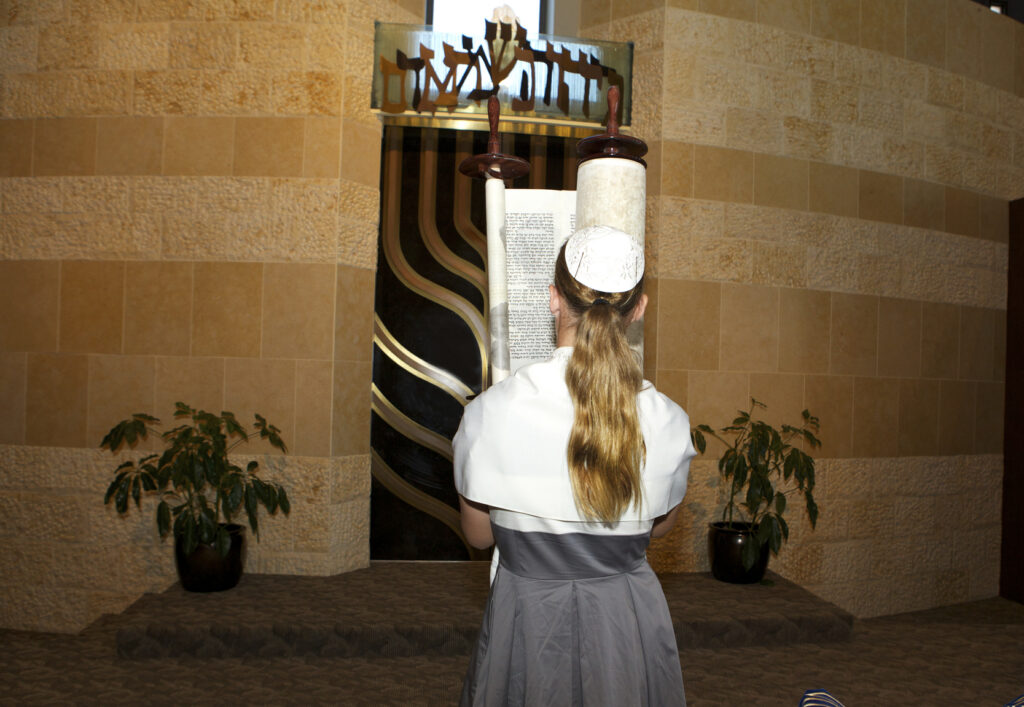
I wrote this blessing for my oldest daughter at her bat mitzvah Lit. Commandment. It is traditionally held that there are 613 mitzvot (plural) in Judaism, both postive commandments (mandating actions) and negative commandments (prohibiting actions). Mitzvah has also become colloquially assumed to mean the idea of a “good deed." . I made her tallit A four-cornered garment to which ritual fringes (tzitzit/tzitzi'ot) are affixed. The knots in the fringes represent the name of God and remind us of God's commandments. The tallit is worn during prayer and can also be drawn about oneself or around the bride and groom to symbolize divine protection. and we tied the tzitzit A set of fringes tied and knotted on each of the four corners of a tallit, symbolizing and reminding the user of God's commandments. Some Jews wear tzizit under their clothes at all times, with the fringes visible. together, when I presented it to her to wear on the bima The stage or platform on which the person leading prayers stands. I also gave her this blessing.
INTRODUCTION TO BLESSING:
When we finished tying your tzitzit you took the most important step of becoming a Bat Mitzvah . It was not the act of tying the fringes; it was the moment when you realized that it was yours. Truly yours — not just as a possession, but something beyond that. You made it yours by the work you put in and by connecting each knot to your hopes and dreams, to the things you are grateful for, and to your own understanding of what it means to be a Jewish adult. I made this tallit for you last summer with your dad, but it is you who completed it. Today we will literally hand you the Torah The Five Books of Moses, and the foundation of all of Jewish life and lore. The Torah is considered the heart and soul of the Jewish people, and study of the Torah is a high mitzvah. The Torah itself a scroll that is hand lettered on parchment, elaborately dressed and decorated, and stored in a decorative ark. It is chanted aloud on Mondays, Thursdays, and Shabbat, according to a yearly cycle. Sometimes "Torah" is used as a colloquial term for Jewish learning and narrative in general. , passing on our values to you, but it is up to you what you will do with it. Just like your tallit , you will make Judaism your own.
The painted corners of your tallit represent the journey our ancestors took to the Promised Land, as well as your own journey; these are my blessings for you at this stage in your life’s journey.
May you always be able to articulate your hopes for the future as beautifully as you did when you tied the tzitzit on the corners of your tallit . May you be like the water, knowing when to let go and go with the flow. May you be guided by the wisdom of the Torah and our ancestors even as you find your own way. May you climb the highest mountains and know that you have the strength to keep going even when you want to quit. May you always know that you are never alone on life’s journey. May you have the courage to be who you are and to stand up for your ideals, even when it is not popular. May you choose your own path and never let others steer you in the wrong direction. May you always have the freedom to be exactly who you are — creative and inventive, passionate and caring, and the coolest person I know. May your love of books lead you to a lifetime of learning. May you find expression for all your creativity and share your gifts with the world. May you use your strengths for good, and may you come to know your own power. May you remember that your actions matter — that what you do in life matters, so that you make a difference in the world for the better. May all your dreams come true, because you are the type of person to make them come true. May you always remember that the blessing is in the journey. May your eyes shine with the light of Torah and may your face be radiant with your inner light that you share with the world.
- Posted in Bnei Mitzvah
- tallit , tzitzit
Ritualwell content is available for free thanks to the generous support of readers like you! Please help us continue to offer meaningful content with a donation today.
Leave a Reply Cancel reply
Your email address will not be published. Required fields are marked *
Save my name, email, and website in this browser for the next time I comment.
Related Rituals

Make of Yourself a Mezuzah: A Ritual in Preparation for Unification Through the Shema
- by Rabbi Janet Madden
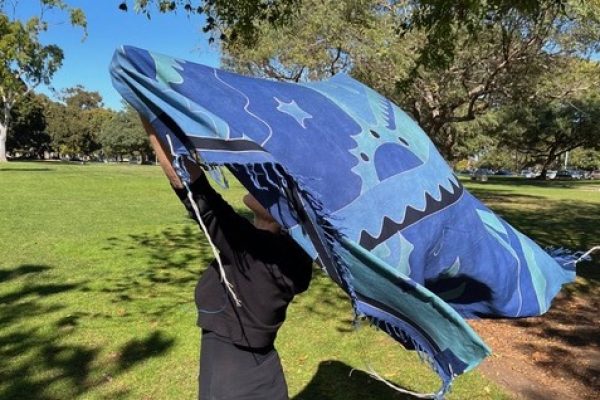
Wrapping, Embracing
- by Janice Steinberg

Tallit Blessings: Tying the Knots
- by Rabbi Debra Smith

The Reconstructionist Network

Read & Rite
One-stop shop for progressive Jewish books and ritual objects
Placement Office
Placement resources for rabbis and congregations
Havaya Summer Programs
Reconstructionist educators of north america.
Professional group for people leading schools in Reconstructionist congregations
Reconstructionist Rabbinical Association
Professional association of Reconstructionist rabbis

The Jewish Approach to Conflict Transformation
Jewish tradition is a storehouse of wisdom and practical application on how to navigate the world of conflict and how we respond to it. In this Immersion, we will explore what conflict transformation might look like in our times. Six sessions starting April 4th.
Get the latest from Ritualwell
Subscribe for the latest rituals, online learning opportunities, and unique Judaica finds from our store.
Bar and Bat Mitzvahs
A bar/bat mitzvah is a) a meaningful milestone or b) an expensive party with some jewish thrown in.
A Jewish scholar or teacher and spiritual leader. If you want to become one, be prepared to go to rabbinical school for five years.
(Also known as the High Holy Days .) The two days of Rosh Hashanah and the one day of Yom Kippur that are considered the most solemn/important days on the Jewish calendar.
The group of ten people over the age of 13 that is required for traditional Jewish worship. Observant Jews will only count men, not women, for a minyan. We call BS on that.
The central scriptures of Judaism. Torah can refer specifically to the Five Books of Moses (Genesis, Exodus, Leviticus, Numbers and Deuteronomy) or more generally to the entire Old Testament, known as the Tanakh.
We're not The People of the Book for nothing.
Way More Than a Big Party!
You know who really loves what's become of today's bar/bat mitzvahs caterers and party planners..
(Hebrew for to go up. ) The honor of being called to the bimah to read the blessing before and after a section from the Torah is read. You’ll often hear this referred to as being given an Aliyah because it is considered a gift or honor to be invited to give this blessing. The blessing is done in Hebrew and should definitely be practiced in advance. The blessing can be slightly different depending on the affiliation. For example, the Reconstructionist version uses language that is egalitarian/gender neutral, while other versions are more old-school and traditional.
(You might hear what sounds like the same word about someone who is moving to Israel, but the pronunciation is slightly different. The synagogue version is pronounced a-LEE-yuh, usually as in “being called up for an Aliyah.” When someone is moving to Israel it is pronounced ah-lee-YAH, usually as in “making aliyah.” Don’t be JewBarrassed – this used to confuse us too.)
Does the laser light show entrance really set the right tone? Um, we're gonna go with nope.
Choosing A Synagogue
A good time for synagogue shopping, maybe.
Also known as a shul or temple, the building where a Jewish congregation meets for religious worship, Jewish holidays, Hebrew school, etc. Like a church or a mosque for Jews.
Synagogue or no, your kid is going to need a tutor for the Hebrew. Trust us on this one.
The Bar/Bat Mitzvah Service
A bar/bat mitzvah is basically a saturday morning shabbat service with some extra.
(Also known as the Sabbath .) The day of rest that starts at sundown on Friday and ends at sundown on Saturday. Most of the time when we refer to Shabbat at JewBelong we mean Friday night, especially dinner. There are many ways to “keep Shabbat.” Most refer to a staying away from using any electricity, perhaps going to synagogue, taking a nap, spending time with family and friends and recharging yourself for the workweek ahead.
(Sometimes pronounced tallis.) A prayer shawl. It looks like a regular shawl but has special knotted fringes (known as tzitzit ) at the four corners. Traditionally only men wore them, but ya’ know, equal rights. In many synagogues people only wear tallitot (plural for tallit ) when the Torah is going to be read, which is usually on Saturday mornings and other holidays. (So, you know you’re in for a longer service when you see a tallit.) A tallit used to be mostly white with blue stripes, but now they can be found in many gorgeous colors and fabrics. Tallit are supposed to be made from wool, cotton or some synthetic fibers. There are kosher rules about this. Who’d a guessed?
- Chanting An Aliyah: This is when your teen is called up to the bimah to recite the blessings for the week’s Torah reading. Don’t miss JewBelong’s section on how to do an Aliyah like a champ!
- Reading From The Torah And/Or Haftorah.
- Mitzvah Speech: The speech can be about the Mitzvah Project , the Torah portion, or anything else that is particularly meaningful about having reached this day. (Also, it’s a good time to thank parents and anyone else who helped.)
The service is always more special when loved ones play a role. For instance, many families honor relatives by calling them up to read or chant an Aliyah (more on that here ), or lift or “dress” the Torah. Lots of people also add readings or blessings (like the ones found in the reading section below). Many rabbis are particular about how many readings can get added to the basic Shabbat service, so be sure to discuss it in advance.
OK, let's memorize a paragraph in a language we don't speak. Sound like fun?
Mitzvah Projects
Mitzvah projects: the best thing to happen to bar/bat mitzvahs in the last 50 years.
Hebrew word that people often say when they are referring to charity or charitable giving, but which actually means righteousness, justice or fairness. A core value of Judaism, giving to those in need is considered an act of social justice, and something that Jewish people are obligated to do. Considered a key part of living a meaningful life. There is a ton of Jewish wisdom about tzedakah. For example, the bible commands that farmers leave the produce at the edges of their fields unharvested so it can be taken by people are in need.
(Hebrew for repair of the world .) A key Jewish value defined by acts of kindness meant to help repair the world. This is a basic Jewish teaching and is one of the reasons that Jews are so involved in social justice issues. As Jews, we are commanded to repair the world, and God knows, it needs it. Yes, this is pressure, but the idea is that no one of us can heal the world on our own, but we are all accountable for doing our part, so we also keep our expectations realistic.
We like tigers and elephants. But Holocaust survivors could use a little help too.
Beware: Difficult Conversations Ahead
This is the case for most families anyway. This includes everything from God, to budget, to how to include a non-Jewish parent or family member. Our advice is to be aware of these potential landmines and work your way through them the best that you can. Sometimes these conversations air pent-up feelings, which isn’t easy but can be a good thing! Three biggies that might come up (if they haven’t already):
- Some synagogues only allow Jewish people to stand on the bimah, which can feel exclusive and hurtful to the non-Jewish relatives. Work with your rabbi to come up with a loving alternative.
- Having divorced parents or estranged relatives can also make for a stressful ceremony. Try to remember that the celebration is about the teen who is having the Bar/Bat Mitzvah, and if you can, put your differences aside for the sake of the kid.
- How much will it cost? There are the biggies, like the party, but there are other costs to be aware of, such as tutoring, food, and lodging for out-of-town guests, If necessary, invitations, outfits, etc.
The good thing about Bar/Bat mitzvahs is that they bring family together. That's also THE BAD NEWS.
God Optional Bar/Bat Mitzvahs
True story: you don't need to believe in god to have a bar/bat mitzvah.
One alternative that’s increasingly popular among secular families is for the teen to focus on a social action effort or mitzvah project rather than on the Torah reading. The teen presents the work during or in lieu of a religious ceremony. This can be just as meaningful for families who want to integrate their children into the Jewish community in a meaningful and memorable way (see JB opinion alert above) but aren’t so big on the services part. Other families choose to go to Israel to celebrate, taking part in a group Bar/Bat Mitzvah with other teens and their families. Bottom line is that you don’t need to believe in God to create a meaningful and memorable rite of passage for your child.
Maybe your God is just great knishes and funny stories from your grandmother.
Bar/Bat Mitzvah Prayers And Blessings
Torah passing (feminine).
-Author Unknown
During this moving ritual, family members and loved ones stand side-by-side and pass the Torah down to the Bat Mitzvah to welcome them into the chain of Jewish tradition. The Torah is typically passed from one generation to the next and ends up in the arms of the child who is having the Bat Mitzvah. And then everyone reaches for a tissue because it was so sweet to watch.
First line: The Torah and our Jewish traditions have been stewarded for thousands of years. Last line: Feel the love that we give you now and draw strength that you will someday pass to those who will come after you. Amen…
Torah Passing (Masculine)
During this moving ritual, family members and loved ones stand side-by-side and pass the Torah down to the Bar Mitzvah to welcome them into the chain of Jewish tradition. The Torah is typically passed from one generation to the next and ends up in the arms of the child who is having the Bar Mitzvah. And then everyone reaches for a tissue because it was so sweet to watch.
First line: Rabbi will read as the generations take the Torah and pass it to each other – Grandparents, Parents, Bar Mitzvah. Last line: (Name of Bar Mitzvah here) revere the Torah and cherish its teachings and one day you will have the privilege and honor of handing it down to a new generation…
Kiddush (Blessing Over The Wine)
The blessing recited over wine or grape juice. Some families just do the first line (up to “Amen”) and others do the full blessing. As always, do whatever feels right to you!
First line: Baruch atah Adonai, Eloheinu melech ha-olam, borei p’ree hagafen. Amen. Last line: Blessed are You, God, Spirit of the Universe, who creates the fruit of the vine. Amen…
Aliyah Prayer
First line: Leader: Baruch et Adonai ham’vorach. Last line: Blessed is the Eternal One, Giver of the Torah…
Your whole family is coming for the Bar/Bat Mitzvah. Every damn one of them.
Bar/Bat Mitzvah Readings
Blessing for anyone who isn't jewish ('cause we know this is a lot).
-Inspired by Rabbi Janet Marder
So here is the thing, half of the Jewish families that we know are headed by a couple where one of them is not Jewish. And we think eureka! That is great! Why isn’t there a blessing for that person who is not Jewish but participating in a Jewish home/life! And… there is! And we love it and hope you do too!
First line: May everyone who shares in a Jewish life feel welcome and integrated. Last line: With all our hearts, we want to thank you for your love and willingness in giving the ultimate gift to the Jewish people. Amen…
A Blessing For Friends!
-A JewBelong Original
So much of Jewish practice revolves around having a strong, loving community. So, we decided we needed to have a blessing for our friends and community. If you think the part asking people to hold hands won’t fly with your group, just edit out the second line. But you should push yourself to leave it in. People love that stuff.
First line: Here with you our friends, we feel so greatly blessed. Last line: May we always remember the exquisite value of friendship and community and be good friends in return. Amen…
Listen To The Mustn’ts
-Shel Silverstein
Shel Silverstein is the guy who wrote The Giving Tree and other perfection. This is one of his beauties for sure.
First line: Listen to the mustn’ts, child, listen to the don’ts. Last line: Anything can happen child, anything can be…
From Our Foremothers
Our Jewish foremothers are each known for their unique strengths – Eve’s fortitude, Rachel’s compassion and Deborah’s self-esteem – to name a few. This reading calls on each Jewish daughter to look to her foremothers for inspiration and wisdom.
First line: We hope that this child draws inspiration from the examples of her foremothers. Last line: And from Ya’el the courage to do what she knows she must do…
Don't miss JewBelong's blessing for non-Jews . It's beautiful and important!
Bar/Bat Mitzvah Song
-Debbie Friedman
This song is the perfect tearjerker to share at any happy Jewish occasion. L’chi Lach essentially means “go into yourself” in Hebrew. The lyrics tell those that are being celebrated to go begin the life journey they are meant to have, and to be a blessing in the world, which is essentially the journey all Jewish people are meant to have.
First line: L’chi lach, to a land that I will show you. Last line: L’chi lach…
Don't miss this song! Some synagogues don't include musical instruments but honestly, you don't need them.
Sign up for eternal bliss and inner peace. (JK, but we will send you fabulous emails once in awhile.)
Woohoo, thanks for signing up.
Stay tuned for occasional emails about all things Jewish.
Your saved faves, all in one convenient place!
Why make an account and save your favorite JewBelong stuff? Because someday Jack is going to get off his ass and pop the question and you’re going to get to plan that wedding you've been thinking about since third grade.
Every time someone signs up for our emails a Jewish angel gets its wings! Subscribe here.
Every time someone signs up for our emails a Jewish angel gets its wings. Subscribe now.
Congratulations! You're in.
Hey, can you watch the phones on Friday? We have a thing.
It makes us happy to know that you’re back. Have a great day!
Why make an account?
Because why use any of your precious brain cells to remember where you kept those great readings that you’ll use someday at Jeffrey’s B Mitzvah? Make an account, keep the readings there. Easy peasy. The only thing you’ll need to remember is your password, and from personal experience that’s hard enough.
Matzah with butter is delicious!
Recent Searches
- Jewish Culture
- Join Kveller
Grandparents
My Granddaughter and I Had Our Bat Mitzvahs Together on Zoom
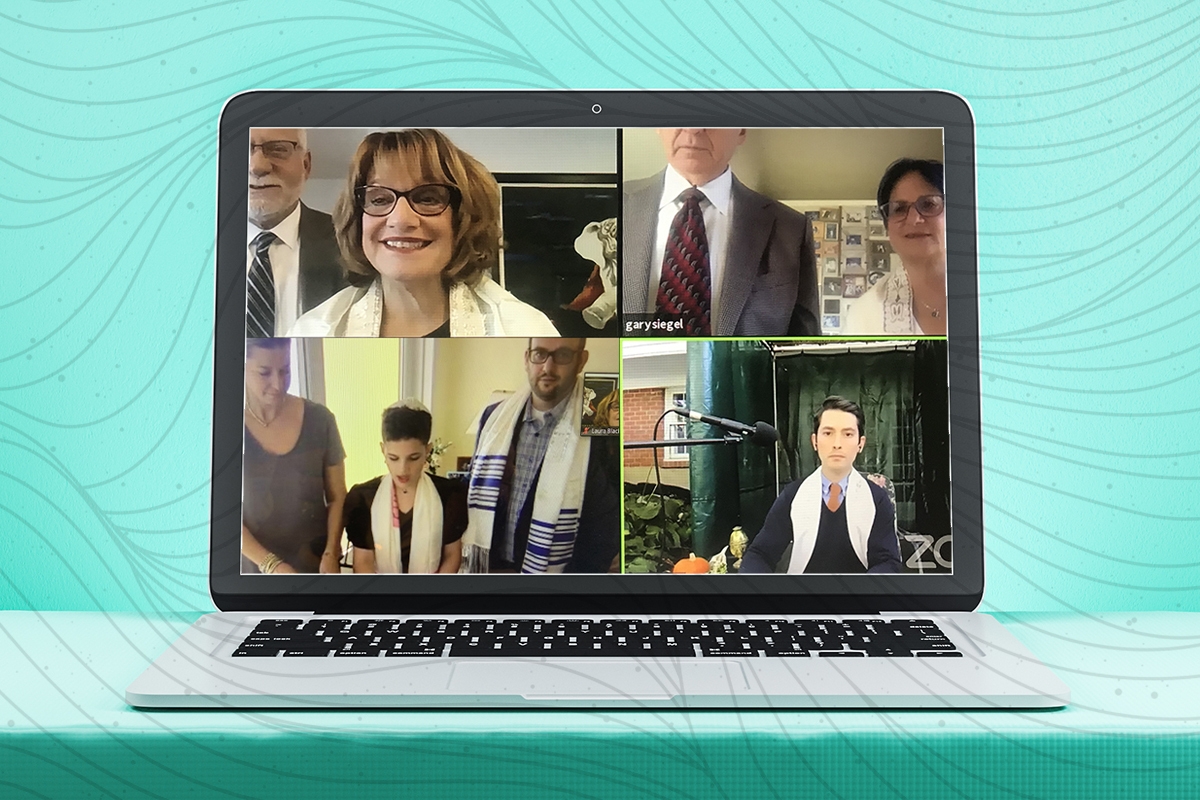
Two years ago, my granddaughter , Addie, percolating with excitement, called to tell me that she had received her bat mitzvah date. My mind flashed to a memory of her wearing a purple tutu and playing princess. Where had the time gone? I wondered.
Her next request caught me off guard. “Dad told me that you’ve never been bat mitzvahed. Is that true?” she said. “If it is, let’s get bat mitzvahed together!”
It was true. When I was Addie’s age, in the mid-1960s, bar mitzvahs for boys were commonplace but bat mitzvahs for girls were just gaining traction. My parents encouraged me to pursue my Jewish education, but they did not insist on it — so therefore I passed on Hebrew school .
My mother and father had a laissez-faire relationship with Judaism . The traditions, history, and identification were important to them: they hid the afikome n at Passover, schlepped us to High Holiday services, and hung a mezuzah on the frame of our front door. But they did not light Shabbat candles, keep kosher, or rely on their faith for comfort and security
In stark contrast was my paternal grandfather, who was Orthodox . A kind, gentle, yet powerful man, Judaism was his backbone. It kept him upright, steady, and confident that God was watching over him and his family. Through the years, he became increasingly observant of Jewish laws; of his thrice-daily prayer sessions, my father said, “he’s cramming for finals.”
My grandfather’s commitment to Judaism left a mark on me. I felt a bit of envy — what would it be like to possess such an ironclad belief system? And now, with those old perceptions reignited, my granddaughter was offering me the opportunity to further my religious exploration.
At first, I shrugged her off. “Addie, that is so thoughtful, but it’s your special day,” I said. “Let’s concentrate on you.”
“But it will make my special day even more special if we do it together,” she countered.
And then I remembered, “You know your other grandmother never had a bat mitzvah, either.”
Without skipping a beat, she said, “So it will be us three! And let’s give away socks at the party.”
I remained noncommittal, figuring that, with time, once she stepped into the whirlwind of preparations, her desire for a multiplayer bat mitzvah would subside.
But I was wrong. Addie continued to campaign and I began to seriously consider her request. For one thing, it was never easy for me to deny any of my three grandchildren anything — from “one more time” on the merry-go-round when they were toddlers to weekends at the beach as they got older, I easily gave in. For another, I was curious to see how this process might enrich my life. And maybe I could set an example of the importance of Judaism for Addie, like my grandfather had done for me.
And so, over the last two years, along with my daughter-in-law’s mother, Judy, I attended bi-weekly lessons with the patient teachers at our synagogue in Baltimore. We began at the very beginning: I learned Hebrew letters with flashcards, and how to differentiate a daled from a vav , which are very similar looking at first glance. I mastered the traditional blessings. And I listened, hundreds of times, to my cantor’s melodic voice on my iPhone and memorized, albeit off key, my Torah portion.
As the months passed, our newly formed triumvirate engaged in summit-level discussions delineating the details of our big day. As per Addie, we agreed to wear coordinating outfits, but nothing “matchy matchy.” We planned a Kiddush lunch for after the service, adding family favorites like nova and whitefish to the pre-fixed menu. We booked one of those places with disco lights and video games for a kid’s party that night. The grandparents would bring their own alcohol and hang out in a side room
As October 2020 drew nearer and my confidence grew, what started out as a concession to Addie stirred up a hunger for a deeper understanding of and connection to Judaism. I absorbed the meaning behind the blessings . I saw myself standing on the bima (stage), leaning over the Torah, pointer in hand, chanting to a sanctuary brimming with friends, family, and loving memories of my parents and grandparents.
But then came Covid-19. Like so much of our lives, our Hebrew lessons pivoted to Zoom . As infection rates skyrocketed, I reviewed cancellations clauses in our contracts and steeled myself for how things would play out.
As spring turned to summer, my daughter-in-law got the call: all in-person events at the synagogue were cancelled. We were relegated to a virtual bat mitzvah. I was devastated for Addie; disappointed for myself. How would I find what I was searching for, what my grandfather experienced, chanting to a laptop at my kitchen counter?
Following the advice of the CDC, we couldn’t even be togethe r under one roof. Judy would become a bat mitzvah from her house in the country; me, from mine in the city. To compensate for Addie’s disappointment, her parents took her to our condo at the beach. They would finagle their laptop at just the right angle so that the midnight-blue ocean formed a backdrop for her prayers.
The morning of our big day, I washed and blow dried my hair, put on make-up, added a necklace and earrings. It wouldn’t matter what outfit I wore; the camera would only capture me from the waist up. As I scoured my drawers for a handkerchief to cover my head, I stumbled upon a purple velvet drawstring satchel which had belonged to my father. It was a wedding present from his grandparents that held his tallit (prayer shawl) and kippah . I decided to forgo the handkerchief, and I bobby-pinned the kippah and wrapped the tallit around my shoulders.
As the 10 a.m. start time approached, my husband stood by my side and the familiar, welcoming faces of our clergy lit up the screen. With our laptop in gallery mode, I saw Judy holding hands with her husband in a square on the left. In the top right, my son and daughter-in-law; their faces, aglow with delight, waiting to witness their daughter’s rite-of passage, brought tears to my eyes.
The music began and the clergy welcomed us to a different but still sacred service. Addie surpassed all of our expectations, chanting her prayers and Torah portion with a pure, angelic voice. Then it was up to me. I took the ends of the tallit and pulled them together, tight enough to feel my father’s hand on one shoulder, my grandfather’s on the other. I caught Addie watching me with an, “I told you this was a good idea” smile.
As I began the blessing, I was transported. The combination of seeing my granddaughter’s metamorphosis into a woman — and then myself, in my 60s — offering those ancient blessings, elevated me to higher grounds. I felt like I did when I visited Jerusalem for the first time and pressed my palm to the Western Wall; I felt a connection to something so ancient and yet so present. Remnants of self-consciousness evaporated as I succumbed to a higher presence, who whispered: “Trust me. All is good. You are safe.”
Although I will not practice my Judaism in the same way as my grandfather — I do not plan to become observant— I will continue to search for spirituality . It brings me peace, contentment, and takes me to a place outside of myself, puts me in touch with something I cannot name. This transcendence can appear at any moment and in anyplace — even on the screen of a laptop.
Header image via Laura Black/peshkov/Getty Images
Laura Black is an award-winning attorney and businesswoman turned author and speaker. She helps midlife women embrace their 2 nd (3 rd or 4 th ) act with humor and affirmation. For more information please visit www.laurablack.net
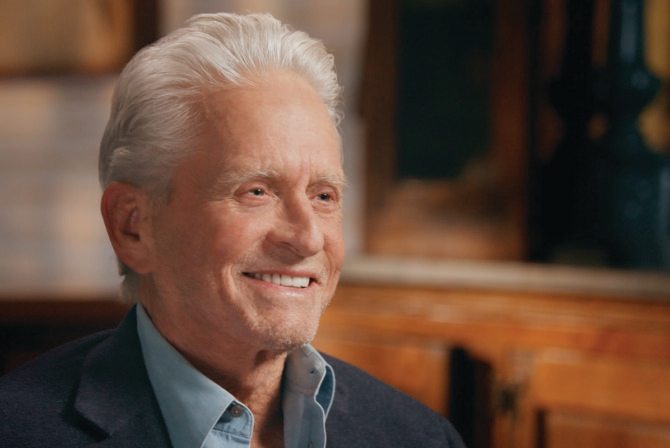
Michael Douglas Says He Feels ‘More Connected to Judaism Than Ever’

We Celebrated My Daughter’s Bat Mitzvah When She Was 18 Months Old
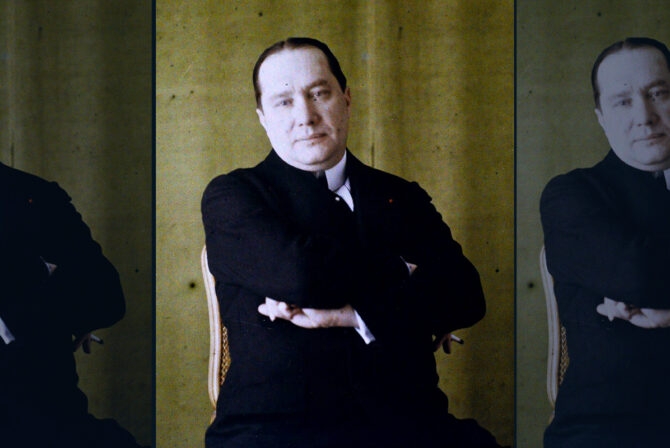
Hulu’s ‘We Were the Lucky Ones’ Introduces Us to Brazilian Holocaust Hero Ambassador Souza Dantas
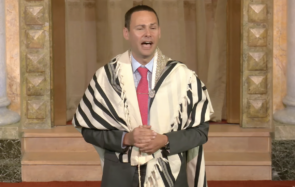
This Coldplay Version of ‘Adon Olam’ Is So Touching

Jason Gould Is Making Music on His Own Terms
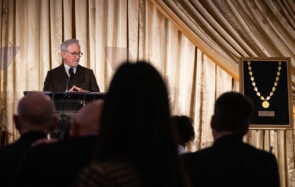
Steven Spielberg Just Gave an Incredibly Timely Speech about Antisemitism
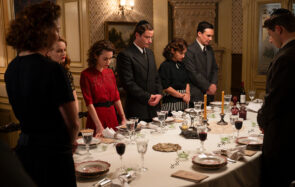
A Guide to the Characters of Hulu’s ‘We Were the Lucky Ones’

Hulu’s ‘We Were the Lucky Ones’ Lets Jewish People Be the Heroes of Their Holocaust Story
Watch CBS News
Biden holds record-breaking New York City fundraiser with Barack Obama and Bill Clinton
By Aaron Navarro , Jordan Freiman
Updated on: March 29, 2024 / 6:54 AM EDT / CBS News
President Biden participated in a star-studded fundraiser with former Democratic Presidents Barack Obama and Bill Clinton on Thursday in New York City in an event expected to raise more than $25 million for the president's re-election campaign.
Thursday's New York City fundraiser at Radio City Music Hall was hosted by actress Mindy Kaling and featured performances by several musical guests and artists, including Queen Latifah, Lizzo, Ben Platt, Cynthia Erivo and Lea Michele. The event was capped off with a nearly hourlong discussion between Mr. Biden, Obama and Clinton moderated by "The Late Show" host Stephen Colbert.
Obama accompanied Mr. Biden on the Air Force One flight from Washington, D.C., to New York earlier in the day.

House Minority Leader Hakeem Jeffries, Senate Majority Leader Chuck Schumer and first lady Jill Biden also delivered remarks during the event.
Schumer touted several of Mr. Biden's accomplishments and spoke of the potential for not just the president's re-election, but for Democrats to control all three branches of government with key wins in the 2024 election.
"Re-elect Joe Biden as president, put Hakeem Jeffries as Speaker, keep me as Majority Leader, and the next four years will be better than this. You ain't seen nothing yet," the Senate majority leader said.
The first lady, joined by several other members of the Biden family, recalled that after she agreed to marry Mr. Biden, "He said, 'Jill, I promise you, your life will never change.' Well that, of course, turned out to be wildly untrue."
She also spoke of the large sum raised for her husband's campaign.
"This is the biggest fundraiser the DNC has ever held – the fundraiser to end all fundraisers – and we've raised a record amount," Jill Biden said.
Mr. Biden, Obama and Clinton discussed a wide variety of topics, from the economy to the border to the Jan. 6, 2021 assault on the U.S. Capitol, which Mr. Biden bluntly referred to as an insurrection.
"I was supposed to make a speech on the economy, and I decided I couldn't remain silent," Mr. Biden said. "So what I did was I made a speech about January the sixth, what was happening. And I said it was an insurrection underway, and it must be dealt with and I plead with the president to stop and do his job, call these people off. He sat there in the dining room off the Oval Office for several hours and watched, didn't do a damn thing. That's why I felt obliged even though I wasn't sworn in yet. I was president-elect."
The fundraiser was interrupted by demonstrators protesting against the war in Gaza multiple times, and one who appeared to be yelling something about nuclear with Russia, throughout the night. One interruption came while Obama was discussing Gaza, to which he replied "You can't just talk and not listen," leading the audience to give him a standing ovation.
"It is also possible for us to have our hearts broken watching innocent people being killed and try to manage through that in a way that ultimately leads to both people being able to live in peace side by side," Obama said. "That is not an easy thing."
"It is important for us to understand that it is possible to have moral clarity and have deeply held beliefs, but still recognize that the world is complicated and it is hard to solve these problems," the former president added.
There were also Pro-Palestinian protests outside the music hall, CBS News New York reported . The New York Police Department told CBS News one person was detained. There was no word on why.
The demonstrators were chanting and screaming their messages, directing their anger toward Mr. Biden and, at times, at police officers.
Mr. Biden reiterated his support for Israel and its right to self defense, but said there were "too many innocent victims" and that more aid needs to get into Gaza. Mr. Biden also expressed support for a two-state solution.
"It's understandable there's such a profound anger, and Hamas is still there, but we must in fact, stop the effort resulting in significant deaths of innocent civilians, particularly children," Mr. Biden said.
The campaign has billed the event as the "most successful political fundraiser in American history."
During a swing through Texas earlier this month, the Biden campaign raised a combined $7 million from three separate fundraisers. A fundraiser for Mr. Biden in Raleigh, North Carolina, on Tuesday raised $2.3 million.
Mr. Biden's largest single-day haul prior to Thursday came in the 24 hours after his State of the Union address earlier in March, when he raised $10 million, according to his campaign.
But Thursday's staggering sum is a new record for the campaign, and it further illustrates the growing cash gap between Mr. Biden and his presumptive general election opponent, former President Donald Trump.

Trump raised $20 million in the whole month of February and $8.8 million in January. He's also been dogged by legal bills and payments , with his campaign and the political action committees supporting him spending over $10 million in legal fees this year.
Mr. Biden's campaign committees have more than double the cash on hand of Trump's equivalent groups, $155 million for Mr. Biden and $74 million for Trump as of late March.
"Unlike our opponent, every dollar we're raising is going to reach the voters who will decide this election — communicating the President's historic record, his vision for the future and laying plain the stakes of this election," said Biden-Harris campaign co-chair and Hollywood mogul Jeffrey Katzenberg.
Trump's campaign sent out two fundraising emails Wednesday mentioning Mr. Biden's Thursday fundraiser, with one calling on "one million Trump supporters to donate to beat the "Obama-Clinton cartel" and the other reading, "We can't lose to Obama!"
- Democratic Party
Aaron Navarro is a CBS News digital reporter covering Florida Governor Ron DeSantis' presidential campaign and the 2024 election. He was previously an associate producer for the CBS News political unit in the 2021 and 2022 election cycles.
More from CBS News

Trump barred from attacks on judge's daughter in New York case gag order
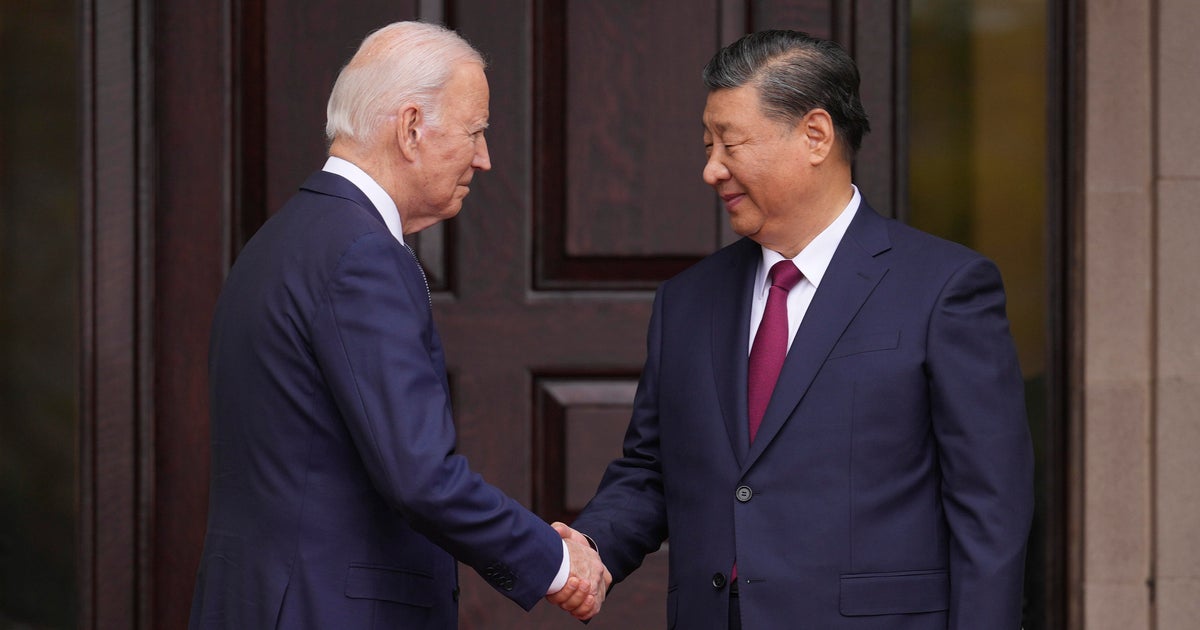
Biden speaks with China's Xi in first call since November meeting

Biden campaign releases ad attacking Trump over abortion

Buttigieg announces new rule to bolster train safety

Watch Cher perform 'Believe' with Jennifer Hudson at the iHeartRadio Music Awards
Do you believe this?
Jennifer Hudson joined Cher on stage at Monday's iHeartRadio Music Awards for a show-stopping performance of two of the latter's biggest hit songs.
The performance opened with Hudson singing "If I Could Turn Back Time" by herself before Cher, whom the " Dreamgirls " star said "needs no introduction," entered and transitioned into "Believe." Hudson soon returned and joined Cher, 77, on the track as the two held hands, and Hudson stunned by belting out the final note.
Start the day smarter. Get all the news you need in your inbox each morning.
Cher subsequently received the Icon Award and delivered a speech in front of giant gold letters that read "ICON."
"If you knew me, you would know that I just wrote my speech while I was getting my eyelashes on," she quipped before declaring that she was wearing pants that she has had "for 40 years."
The "Strong Enough" singer went on to say she felt "blessed and lucky" to receive the Icon Award and to have "people that have stayed with me for all these years," although she joked that "most of you" in the room weren't born when she started. She also reflected on "so many times" in her career when she felt she was "down and out," but she "never gave up" on her dream.
Cher has choice words for Rock & Roll Hall of Fame after snub
"Have a dream and then don't give it up, no matter what happens," she concluded. "Because I know from my own experience that if you have a dream and you stick with it, you will have a wonderful life and it probably will come true."
Past recipients of the iHeartRadio Icon Award include Pink , Jennifer Lopez and Elton John .
While introducing Cher, Meryl Streep reflected on the longevity of the singer's career, noting she is the "only woman in U.S. history" to have a No. 1 record in every one of the last seven decades.
Beyoncé stuns in all black Western wear at iHeartRadio Music Awards: See the photos
"You're lucky if you get seven seconds of somebody's fractured attention, never mind seven decades," Streep, who starred with Cher in 1983's "Silkwood," said. "It takes talent, but more than that, I think it takes heart. When I think of Cher, I think of her giant heart: how open it is, how battered it is, and how strong it is."
Other highlights from Monday's iHeartRadio Music Awards included Taylor Swift winning artist of the year. She did not attend the ceremony but delivered a video message.
"I wanted to say thank you so much to anyone who voted for this award," she said . "To the fans, it's completely up to you to choose how you spend your time, what concerts you want to go to, what music do you want to make the soundtrack to your life, and to anyone who has included me in those choices, I'm so so so thankful for that."
Contributing: Bryan West, USA TODAY NETWORK
This article originally appeared on USA TODAY: Watch Cher perform 'Believe' with Jennifer Hudson at the iHeartRadio Music Awards

Advertisement
Supported by
Trump’s Defense Team Argues First Amendment Prohibits Georgia Charges
Fulton County prosecutors say Donald J. Trump’s comments about the 2020 election were meant to advance a broad criminal scheme to overturn the election results.
- Share full article

By Richard Fausset and Danny Hakim
Donald J. Trump’s lead defense lawyer in Georgia argued in court on Thursday that the former president’s criminal indictment should be dismissed because it was based on comments that Mr. Trump had made about the 2020 presidential election that were protected by the First Amendment.
The lawyer, Steven H. Sadow, said that Mr. Trump’s comments, writings and internet posts after the November 2020 election amounted to political speech, which courts have considered sacrosanct under the First Amendment.
“Take out the political speech, no charges,” Mr. Sadow said at the hearing in a courtroom in downtown Atlanta.
Fulton County prosecutors pushed back, arguing that Mr. Trump’s statements were part of a broad conspiracy to illegally overturn his election loss. The scheme is outlined in a sweeping racketeering indictment that was handed up in August and that named Mr. Trump alongside 18 co-defendants. Four of the co-defendants have since pleaded guilty.
The argument that First Amendment grounds should block Mr. Trump from being prosecuted criminally for efforts to overturn the 2020 election results has previously been rejected by a U.S. District Court judge, Tanya Chutkan, in a separate federal prosecution that is unfolding in Washington, D.C.
Georgia prosecutors noted the earlier ruling in court on Thursday. They also argued that Mr. Trump’s comments should not be considered on their own, but as part of a series of actions aimed to advance crimes including racketeering.
Mr. Trump’s statements were “employed as part of the pattern of criminal conduct in numerous ways, so there’s nowhere to go,” said Donald Wakeford, a prosecutor in the Fulton County district attorney’s office.
Scott McAfee, the presiding judge in the case, did not make a ruling from the bench on Thursday.
The hearing was the first to take place since the Georgia case took a detour after defense lawyers asserted that Fulton County’s district attorney, Fani T. Willis, had created a conflict of interest when she engaged in a romantic relationship with Nathan J. Wade, a lawyer she hired to manage the prosecution team.
This month, Judge McAfee ruled that an “actual” conflict of interest did not exist but that “the appearance of impropriety” remained. To solve the problem, the judge gave Ms. Willis a choice: either Mr. Wade could step away from the case, or she and her entire office could do so. Mr. Wade resigned from his job as special prosecutor a few hours later.
Defense lawyers are seeking to appeal the judge’s ruling on the disqualification matter and reassert their argument that Ms. Willis and her office ought to be removed from the case. Judge McAfee has said that the issue merits review by the Georgia Court of Appeals. The appeals court itself must now decide whether to take the matter.
Richard Fausset , based in Atlanta, writes about the American South, focusing on politics, culture, race, poverty and criminal justice. More about Richard Fausset
Danny Hakim is an investigative reporter. He has been a European economics correspondent and bureau chief in Albany and Detroit. He was also a lead reporter on the team awarded the 2009 Pulitzer Prize for Breaking News. More about Danny Hakim
Our Coverage of the Trump Case in Georgia
Former president donald trump and 18 others face a sprawling series of charges for their roles in attempting to interfere in the state’s 2020 presidential election..
Fani Willis: Trump’s lawyers had argued that the Fulton County district attorney should be removed from the case because of her relationship with Nathan Wade, a colleague and former romantic partner . A judge later ruled that Willis could continue leading the prosecution , but only if Wade withdrew from the case. Wade subsequently resigned .
Other Threats to Prosecution: A special committee of the Georgia State Senate is also looking into accusations of misconduct by Willis , making it clear that the effort to disqualify her from the prosecution is not the only threat to her case .
RICO Charges: At the heart of the indictment in Georgia are racketeering charges under the state Racketeering Influenced and Corrupt Organizations Act . Here’s why such charges could prove to be a powerful tool for the prosecution .
Who Else Was Indicted?: Rudy Giuliani , who led legal efforts in several states to keep the former president in power, and Mark Meadows , the former W hite House chief of staff, were among the 18 Trump allies charged in the case.
Plea Deals: Sidney K. Powell , Kenneth Chesebro and Jenna Ellis — three lawyers indicted with Trump in the case — pleaded guilty and agreed to cooperate with prosecutors against the former president.

IMAGES
VIDEO
COMMENTS
FOR PARENTAL SPEECH WHEN PRESENTING TALLIT 1. Keep it short. Maximum 2 to 3 minutes (at most). 2. Approach 1: Revisit the qualities of the relatives for whom you named your child at his brit milah (circumcision for males) or her simchat bat (baby naming for girls). How has your child grown into those qualities after 13 years.
The tallit (prayer shawl) is worn by adult Jews over the age of bar/bat mitzvah, though some traditionalist Jews don't wear one until marriage. In some synagogues, the parents publicly present their child with a tallit on the occasion of his or her first worship service as an adult Jew, sometimes accompanied by a few personal remarks to their ...
The Tallis is there to remind us about God. The Bat Mitzvah ceremony is a celebration of your daughter being a Jewish adult. Those are your best options for the base material of the speech. alphaheeb. The knots and coils on the strings of the tallit remind a Jew to observe the commandments and all of their details.
Bnai Mitzvah ‐‐the plural of Bar Mitzvah or Bar and Bat Mitzvah ("The twins will become bnai Mitzvah next year.") Dvar Torah ‐‐literally "a word of Torah". Refers to the short talk (speech) the Bar/Bat Mitzvah delivers to the congregation on Shabbat.
bnai mitzvah parent blessings. The Four Tallitot. Mom: Of course, nothing in our house is easy. So, it makes sense that giving you a tallit this all-important morning would be no different. We had an embarrassment of riches when it came to a tallit for you. But as we thought about it, the story of this tallit presentation is a pretty good ...
Presentation of Tallit (Honored Guest) I present this tallit to you, so that you may fulfill the tradition of enfolding yourself in its fringes. Remember that our love is always wrapped around you, as this tallit is wrapped around you today. Before putting on the tallit: Baruch atah Adonai Eloheinu Melech haolam asher k'dshanu b'mitzvotav
In general, most rabbis believe that parents are becoming more aware of the significance and sanctity of bar and bat mitzvah. And while their words may not always be exactly in the language in ...
A tallit (טַלִּית) is a Jewish prayer shawl. As per the Bible's instructions, the rectangular tallit has fringes attached to each of its four corners. These serve to remind the Jew of G‑d and His commandments. The tallit, ideally made of wool (read why, here ), is most often white, with black stripes running down two sides of the ...
And yet we see shifts in behavior. I doubt there are Reform synagogues in which everyone wears a tallit, but in most, many do. There are numerous sociological and historical reasons, including a renewed openness to Jewish peoplehood and particularistic practice, which developed after the Holocaust and the founding of the State of Israel.
Shabbat. My Jewish Learning is a not-for-profit and relies on your help. Donate. The tallit (tall-EET) or tallis (TALL-us) is a large rectangular shawl made of wool, cotton or synthetic fibers. In each of the four corners of the shawl are strings tied in a particular pattern, called tzitzit. The origin of the tzitzit is biblical; the practice ...
Bar/Bat Mitzvah Speech Example #2: Short, Sweet & Funny. This is a speech given by Ronny, a father from Hartford, CT, who gave this speech on his son's Bar Mitzvah. Take Notes: Notice the witty jokes and the length of this speech: short, sweet and to the point. Thank you, everyone, for joining us tonight in celebrating our beloved son's Bar ...
The tallit is worn by adult Jews over the age of bar/bat mitzvah, though some traditionalist Jews don't wear one until marriage. In some synagogues the parents publicly present their child with a tallit on the occasion of his or her first worship service as an adult Jew, sometimes accompanied by a few personal remarks to their child. 2.
Write a meaningful and personally relevant D'var Torah (speech). Choose a prayer and write a creative commentary on that prayer. Prepare and deliver a short "Thank You" as part of the "Hodaah" (Gratitude) section of the liturgy. ... are invited to make a brief presentation of the Tallit (prayer shawl) to the Bar/Bat/B Mitzvah at the ...
The tallit (sometimes called a " tallis " with an Ashkenazic pronunciation) is a garment one can wear to create a sense of personal space during prayer. By wrapping yourself in it, or by covering your head with it, the intention and direction of your prayers can be enhanced. The tradition is that the tallit is worn only during the morning ...
After many requests for sample speeches we are beginning to compile the best of the best. If you would like to help out other parents searching for inspiration, please submit your speech to [email protected] for consideration. We will publish the best of the best! Bar & Bat Mitzvah Parent Speeches >> Sample 1. Your child's name-
The Tallit is a 4-cornered prayer shawl with specially knotted fringes, called tzitzit, worn as a reminder to live a mitzvah-centered life. The tallit is a portable spiritual homein which you can wrap yourself at home, in synagogue or when you are away on adventures and desire time for prayer, reflection or healing from a sore spot in your life ...
Blessing: May you always be able to articulate your hopes for the future as beautifully as you did when you tied the tzitzit on the corners of your tallit. May you be like the water, knowing when to let go and go with the flow. May you be guided by the wisdom of the Torah and our ancestors even as you find your own way.
Presentation Of Tallit: The ceremonial prayer shawl is placed around the shoulders of the Bar/Bat Mitzvah boy or girl, often by a parent, at the beginning of the ceremony, followed by the Tallit blessing. Chanting An Aliyah: This is when your teen is called up to the bimah to recite the blessings for the week's Torah reading.
Learn what to say when you put on a Jewish prayer shawl, or tallit.For more on Jewish prayer, visit myjewishlearning.com
As I scoured my drawers for a handkerchief to cover my head, I stumbled upon a purple velvet drawstring satchel which had belonged to my father. It was a wedding present from his grandparents that held his tallit (prayer shawl) and kippah. I decided to forgo the handkerchief, and I bobby-pinned the kippah and wrapped the tallit around my shoulders.
Presentation of Andrew's Grandfather's (Poppy's) Tallit by by Uncle Allen.Andrew Tallo Bar Mitzvah, October 30, 2010
Abby's Bat Mitzvah ceremony - Tallit Presentation & Imposition of Hands Blessing. Abby's Bat Mitzvah ceremony - Tallit Presentation & Imposition of Hands Blessing. Solutions . Video marketing. Power your marketing strategy with perfectly branded videos to drive better ROI. Event marketing. Host virtual events and webinars to increase engagement ...
Grades 1 and 2 enjoyed a special tallit presentation by Larry Brook, editor of the Southern Jewish Life magazine. Larry told us that his father, Julian Brook enjoys making creative tallitot, "to make the mitzvah fun". Larry was inspired by his father to love and be creative with the mitzvah. Eli Brook (a fourth grader at the NEMJDS) seems ...
A public meeting of the Massachusetts Board of Registration of Speech-Language Pathology and Audiology ("the Board") was held via Videoconference and Conference Call pursuant to section 40 of chapter 2 of the acts of 2023, signed into law on March 29, 2023. Board Members Present by video or phone: Nicole Laffan Sarah Young-Hong
My presentation today covers two reports under the Council's agenda item 7, concerning the human rights situation in Palestine and other occupied Arab territories. I will begin with the High Commissioner's report on Israeli settlements in the Occupied Palestinian Territory, including East Jerusalem, and in the occupied Syrian Golan ...
Michael Ball will be the new presenter of Sunday Love Songs on BBC Radio 2, following the death of Steve Wright. Ball, who currently presents on Sundays from 11am-1pm, will host Love Songs with ...
President Biden participated in a star-studded fundraiser with former Democratic Presidents Barack Obama and Bill Clinton on Thursday in New York City in an event expected to raise more than $25 ...
Jennifer Hudson joined Cher on stage at Monday's iHeartRadio Music Awards for a show-stopping performance of two of the latter's biggest hit songs. The performance opened with Hudson singing "If I ...
By Richard Fausset and Danny Hakim. March 28, 2024. Donald J. Trump's lead defense lawyer in Georgia argued in court on Thursday that the former president's criminal indictment should be ...